Browse 113 cottonmouth water moccasin snake stock photos and images available, or search for florida cottonmouth or rattlesnake to find more great stock photos and pictures Florida cottonmouth snake climbing amongst foliage, Florida Image courtesy Centers for Disease Control / Edward J Wozniak2 Does a copperhead have an orange belly?The water moccasin's rumored reputation as an aggressive snake far exceeds its Source cdnmoscmsfuturecdnnet Baby water moccasins do not need the protection or the hunting skills of their mothers because they have evolved the unique ability to flick their pink tongues and trick frogs and other creatures into thinking it is a worm

How To Identify A Baby Cottonmouth Snake 16 Helpful Photos
Copperhead snake baby water moccasin belly
Copperhead snake baby water moccasin belly-Yes, definitely a juvie cottonmouth (water moccasin) The juveniles do the mouth display, but the snakes only do the display when they feel threatened or cornered Different individual snakes have different thresholds for feeling threatened and different individual humans have different behaviors that can prompt or avoid a snake going into a defensive or aggressive responseMaryland is home to 27 species and subspecies of snakes, including two with medically significant venom, the copperhead and the timber rattlesnake These two species are found in the viper family (Viperidae) The remaining species are in the family Colubridae, which is the largest snake
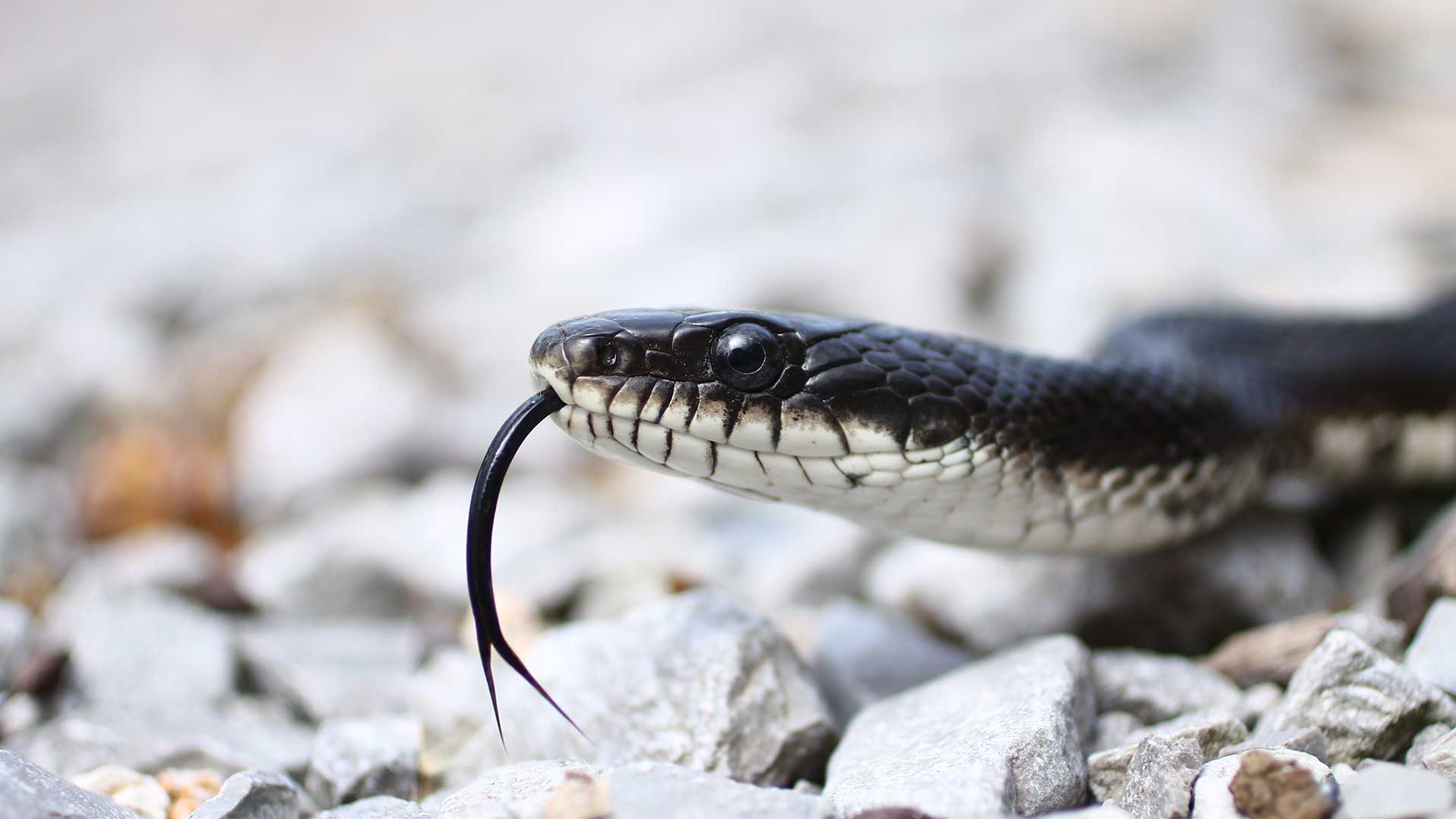



Black Snakes What You Should Know Today S Homeowner
57 Copperhead Snake Baby Water Moccasin Belly Viral This water snake is commonly mistaken for cottonmouths, but though they This water snake is commonly mistaken for cottonmouths, but though they However, babies possess unique features such as grayer coloring, yellow tail tip, and often 2 small dark spots on their heads The copperbelly water snake is a nonvenomous snake that grows 2 to 4 feet in length It has a solid dark (usually black) back with a bright orangered belly Females grow larger than males;The Copperhead The belly of the Copperhead is a mottled pattern of white to gray This feature can also be used as an aid in separating the Copperhead from the Eastern Milksnake, which has a black and white belly pattern roughly resembling a checkerboard The unmarked head, somewhat triangular, is covered with large coppercolored scales
The common watersnake is a nonvenomous snake that is often seen throughout the Eastern United States as well as Southeastern Canada Due to its often brown coloration with dark brown blotches, it is often confused with the venomous cottonmouth (or water moccasin) or the venomous copperhead snakeOn this page, you can find an overview of snakes in Mississippi The list is separated into nonvenomous and venomous snakes in Mississippi This should give you a quick overview if you are dealing with a venomous snake or not Just click on any of the images or links to learn more about the snakeThe Northern Copperhead belly of the milk snake is white with dark splotches resembling a checkerboard pattern (See Figure VI18) Other snakes confused with the milk snake include the northern water snake with its keeled scales, compared to the milk snake's smooth scales The northern water snake also has a divided anal plate
Nc water moccasin Baby Cottonmouth Water Moccasin Snake nc water moccasin Baby Cottonmouth Water Moccasin Snake Today Explore When autocomplete results are available use up and down arrows to review and enter to select Touch device users, explore by touch or with swipe gestures6 Are orange and black snakes poisonous?Decided to hit the waters edge to find some snakes I found seven water snakes and one getter I filmed a few of the water snakes and two baby water snakes
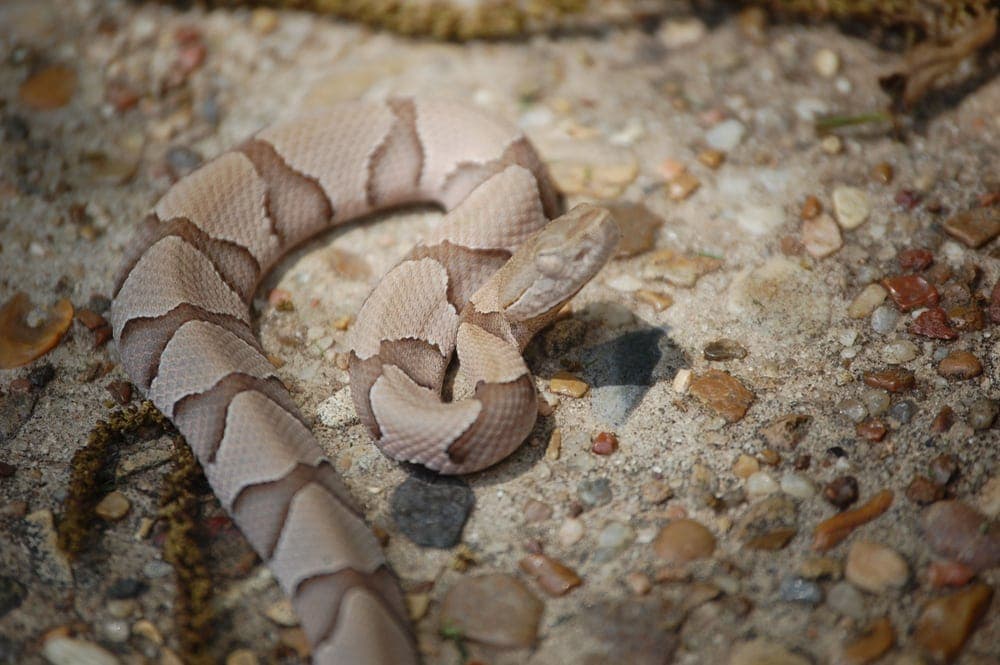



How To Identify A Baby Copperhead Snake Petsoid
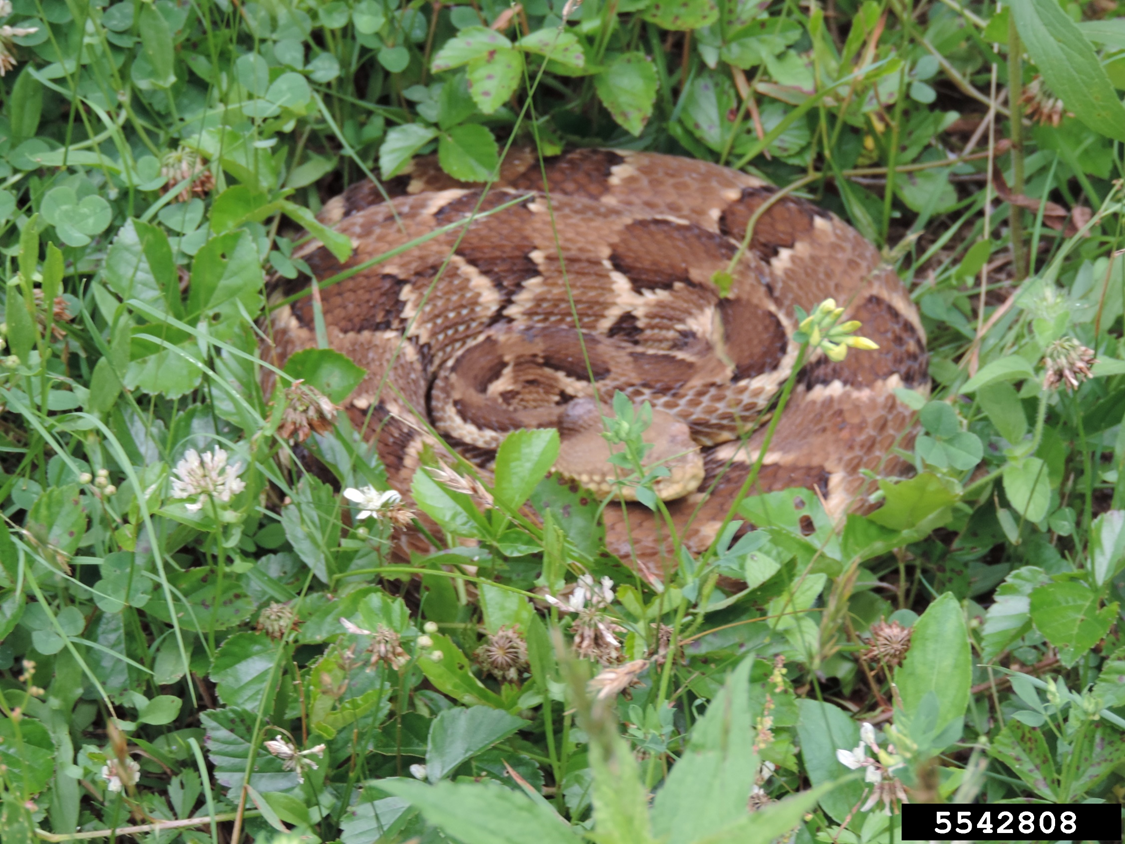



Identifying Copperhead Snakes Home Garden Information Center
Cottonmouth snakes are the only venomous water snake in North America and are part of the pit viper family that includes rattlesnakes, mamushi vipers, and more Baby cottonmouths are as dangerous as their parents and learning how to identify them is an essential skill Especially for people who live in regions where the cottonmouth is prevalent There are seven species of harmless water snakes often mistaken for cottonmouths Coral snake A slender snake with a maximum size of about 3 feet The top of the head and nose are black The typical body markings are complete bands of alternating red and black, separated by narrow yellow rings The snake is found mostly in the lower coastalThe most widespread and frequently encountered snakes in New York state are the garter snake and the water snake Garter snakes use a wide variety of habitats, from woodlands to marshes to fields and exist quite well around human habitations These snakes, like many other species, are variable in color and pattern;
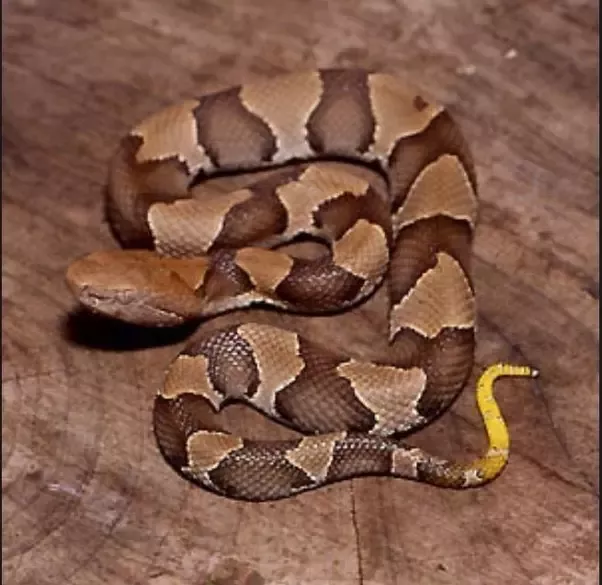



How To Identify A Baby Copperhead Snake Quora




Copperheads Pennsylvania S Quieter More Common Venomous Snakes Pennlive Com
A juvenile water moccasin appears brightly colored with redbrown bands that extend across its back and down its sides without crossing the belly, set against a brown body color Many of the crossbands on the snake's back can contain dark spots and flecksSnake Bellies Snakes In Western Massachusetts Copperhead Snakes Facts Bites BabiesThe Cottonmouth Snake (Agkistrodon piscivorus) is also known as the water moccasin, the black moccasin and the black snake The name cottonmouth comes from the fact that its mouth looks like cotton when it is open The Cottonmouth Snake has been considered aggressive, however, studies have shown that this is not necessarily true The Cottonmouth




Snakes In Tn Watertown Transporting New House Middle School Tennessee Page 7 Baby Snakes Snake Poisonous Snakes
.jpg)



The Trash Palace It Was A Very Very Bad Snake
Within the range of the copperhead in Florida, there are three snake species that can look similar Southern Watersnake ( Nerodia fasciata fasciata ) Nonvenomous The banding pattern is highly variable, but juveniles typically have alternating dark and light brown crossbands the entire length of the body that are darker, narrower, and much more numerous than those on the copperhead Copperheads are closely related to water moccasins (otherwise known as cottonmouths), and more distantly related to rattlesnakes Like all pit vipers, copperhead snakes have heatsensing facial pits that help them detect warmblooded prey They are venomous, and kill by injecting venom into their prey using their large fangsA banded water snake in a defensive posture, with head flared the presence of a pit between the eye and nostril (absent in water snakes) are reliable characteristics of water moccasins A heatsensing pit present in water moccasins (left) is absent in water snakes like the banded water snake (right) Water moccasins also have
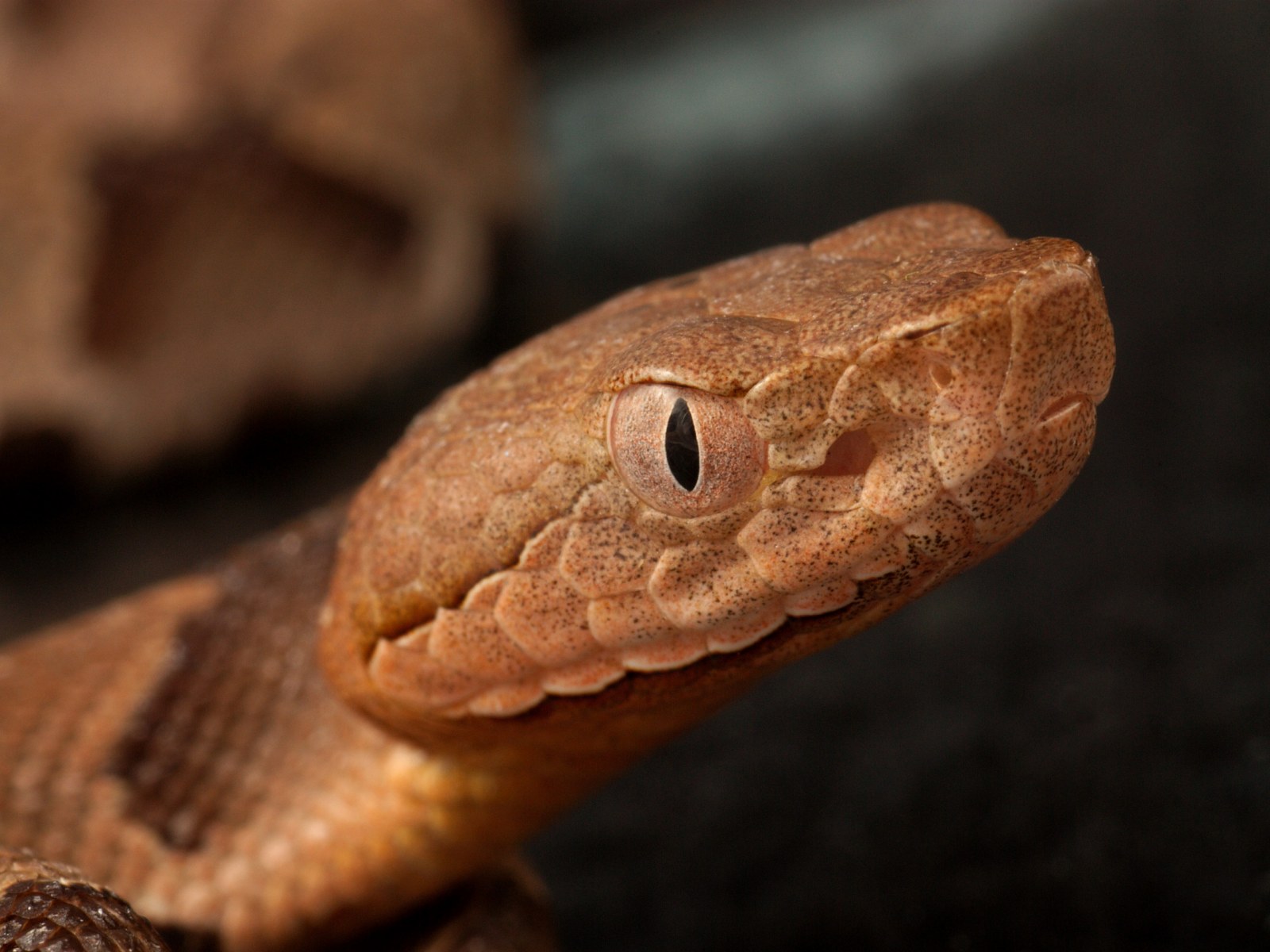



It S Baby Copperhead Snake Season Here S What You Need To Look Out For




How To Identify A Baby Cottonmouth Snake 16 Helpful Photos
The belly of the copperhead is usually lighter than the rest of the body, and it often has a rough or patchy look to it Sometimes there are also dark smudgelike markings along the sides of the belly Baby copperheads do have one feature that makes them stand out from adult copperheadsCaught this little guy in my driveway tonight, he was very aggressiveI did catch him and throw him in the field across the Street 1 What snake has a bright orange belly?
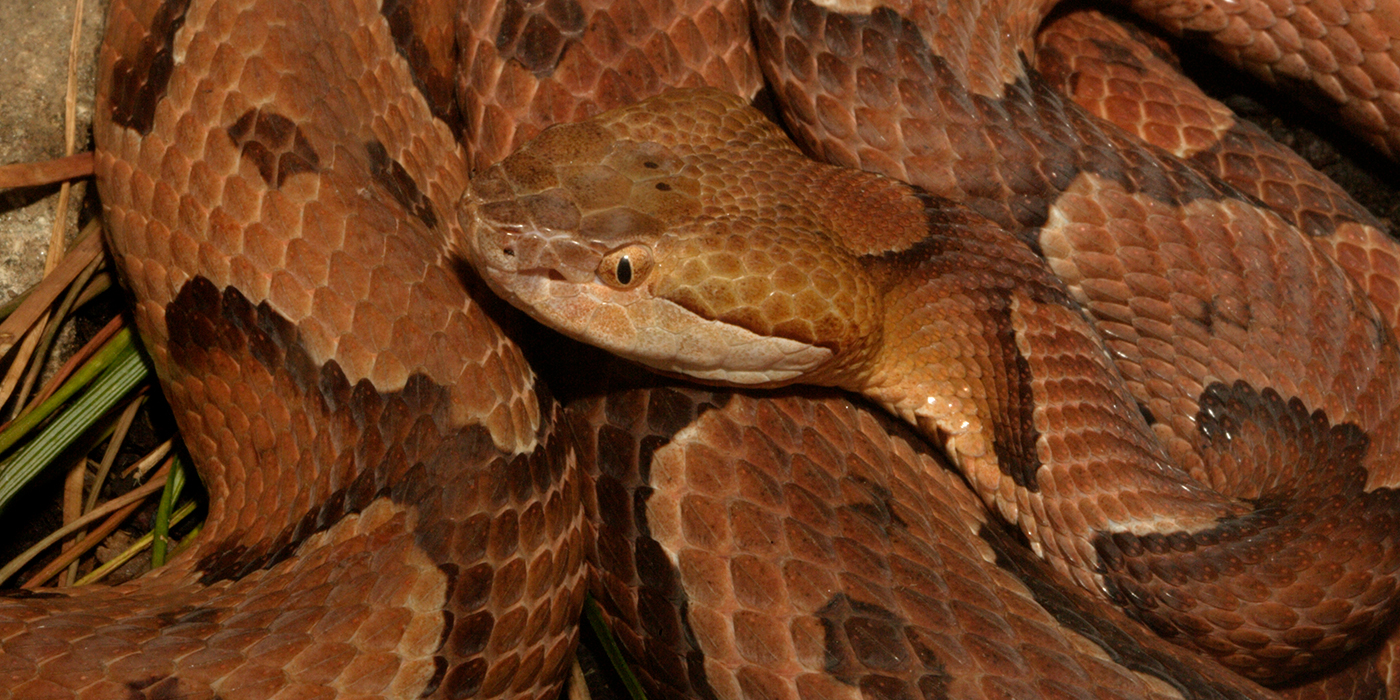



Northern Copperhead Smithsonian S National Zoo
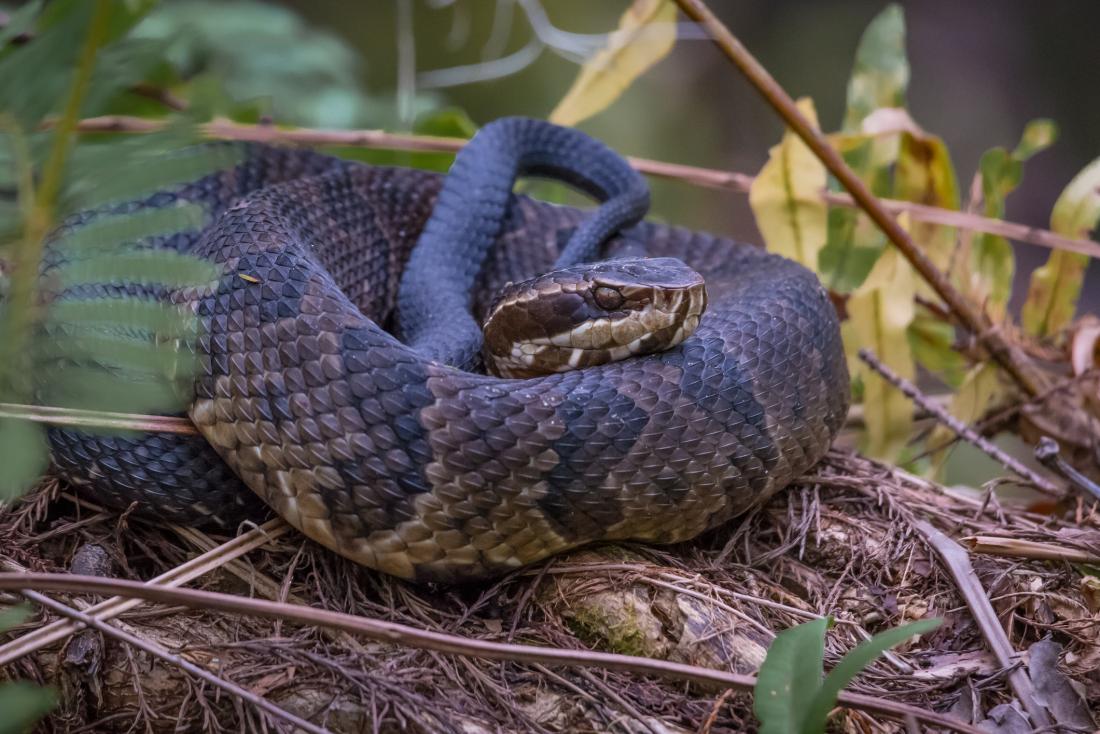



Snake Bites Symptoms Treatment And Types Of Snake
The belly of the copperhead is usually lighter than the rest of the body, and it often has a rough or patchy look to it Sometimes there are also dark smudgelike markings along the sides of the belly Baby copperheads do have one feature that makes them stand out from adult copperheads Some young copperheads might also have a dark head or spots on the head that give away their identify Keep in mind many harmless snakes like rat snakes and water snakes often have the same hourglass pattern as a copperhead One easy way to tell if you're dealing with something venomous is to observe the hourglass3 Are orange bellied snakes poisonous?
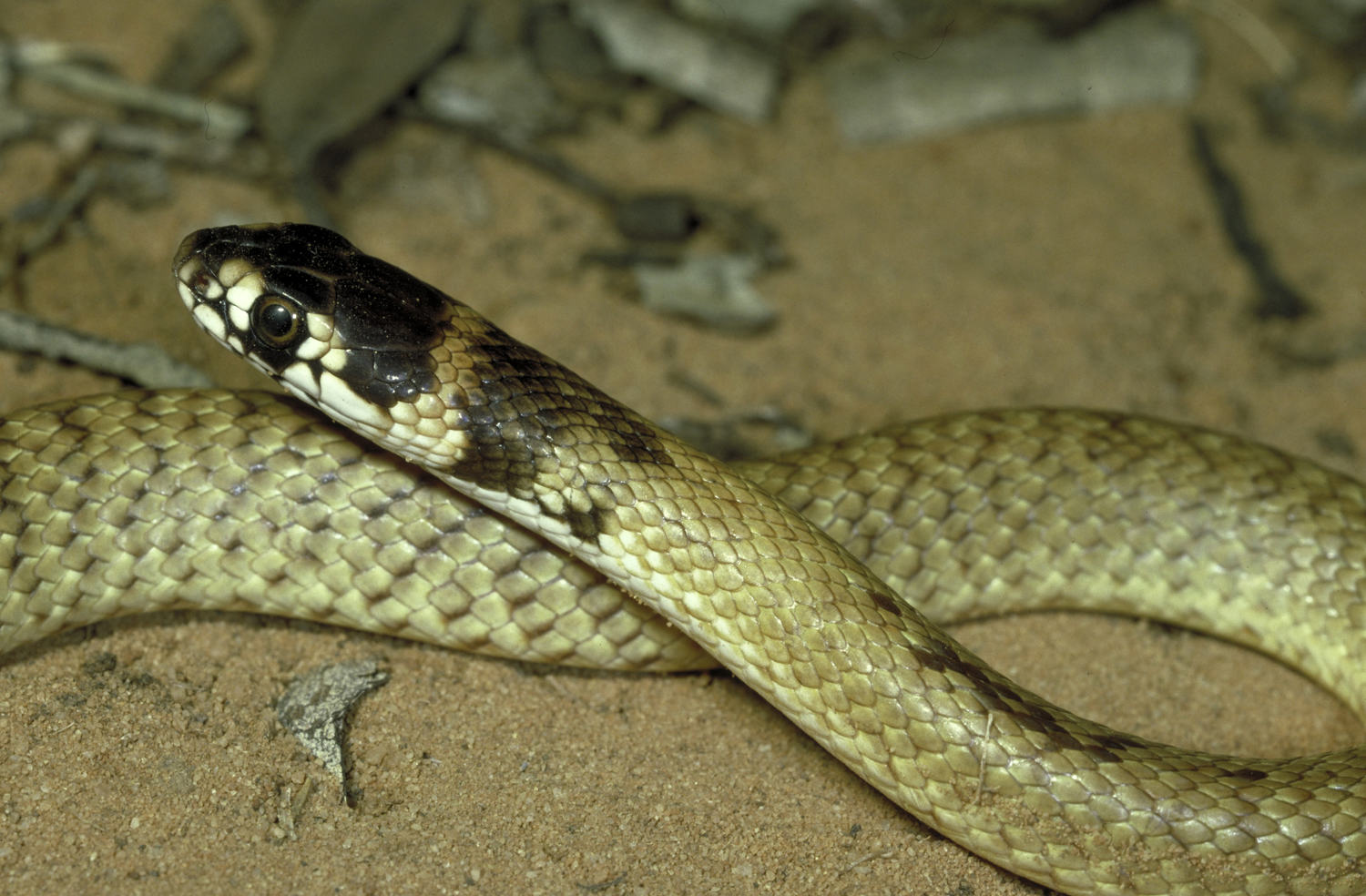



Eight Myths About Snakes Museums Victoria



Copperheads And Similar Looking Harmless Species
The copperhead snake got its name because of the copperlike coloration on the dorsal side of its head The copperhead snake is brown and has alternating cross bands that are light and brownish in different variations The size of an adult copperhead is to 40 inches ( cm) The copperhead snake belongs to the viper familyCommon name cottonmouth, water moccasin, swamp moccasin, black moccasin, viper Length 30 48 in (76 122 cm) Venomous Yes The northern coppermouth is a semiaquatic and venomous snake, often referred to as a water moccasin They have triangularshaped heads with dark lines running through the eye Their large venom glands give them largeThe two venomous species, the timber rattlesnake and northern copperhead, are very rare, and prefer rocky, forested hillsides There are no water moccasins, cobras, or other exotic venomous snakes native to Massachusetts Black rat snake (Pantherophis alleghaniensis)




The American Copperhead Snake Agkistrodon Contortrix Desertusa



Tww Snakes In Lake Johnson
This Banded Watersnake feels threatened and is flattening its body and neck However, for its length, the body of this snake is still more slender than the body of a water moccasin, AND the tail is much longer and thinner 2 HEAD AND NECK SIZE AND SHAPE A baby copperhead snake tail has a yellow tip, which later goes darker as the snake ages Another distinguishing feature of young water moccasins is their bright yellow tail tip How To Identify A Baby Copperhead Snake 21 Pictures from happyserpentcom This is because they become more experienced hunters as copperheads matureBoth adult and baby copperheads display this feature They also typically have two small, dark spots on the top of their heads, though some may not have the spots Other than the dots, there is no pattern on the heads of copperhead snakes The body of a copperhead is usually a light tan or slightly pink color




Identifying Copperhead Snakes Home Garden Information Center
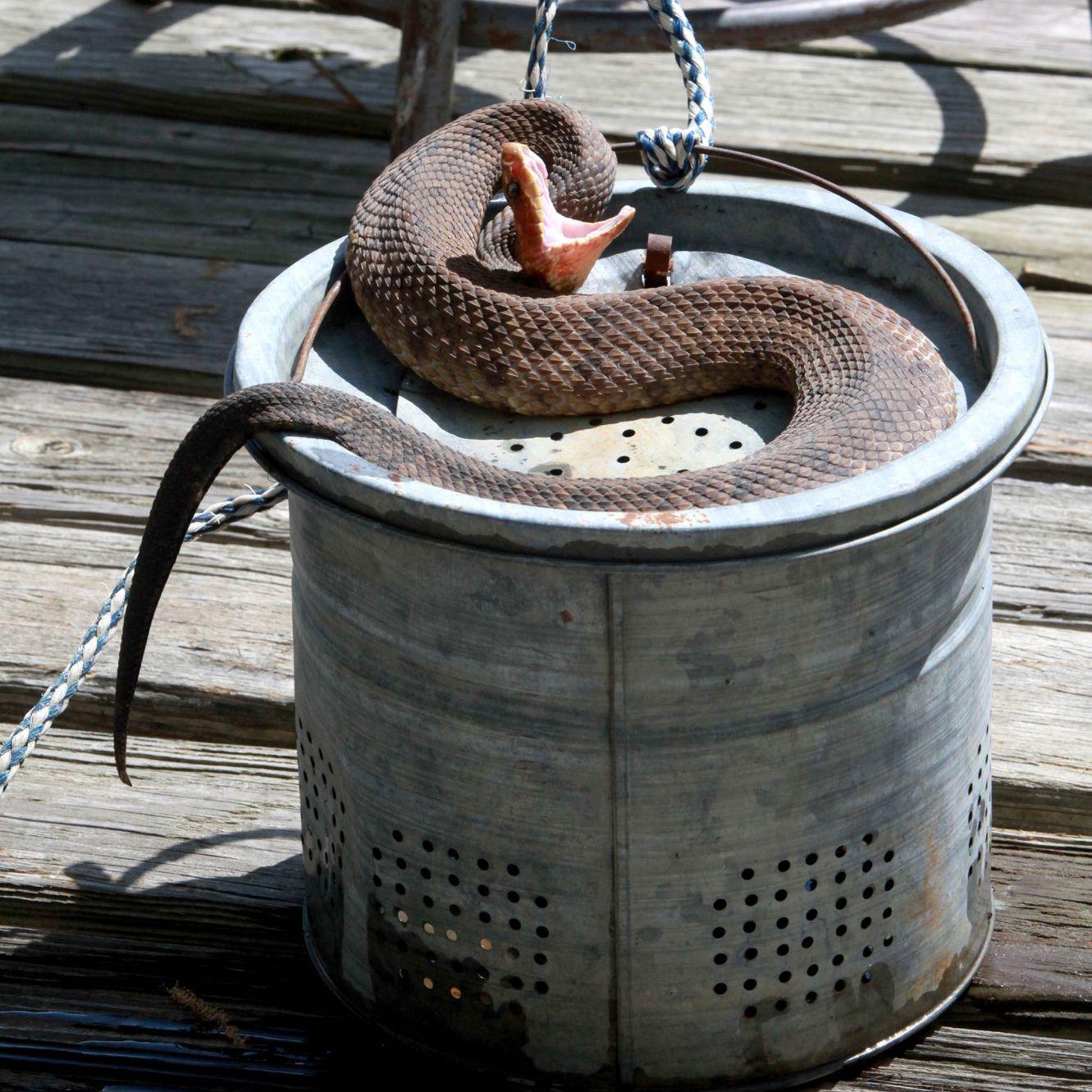



Kelly Bostian Know The Difference Between A Water Snake And A Cottonmouth Before Going Outdoors Sports News Tulsaworld Com
The basic color is dark brownThe color of the Water Moccasin is a dark greenish brown color (almost black) with a pale belly The snake has dark vertical lines by each nostril and a pale snout and chin The Water Moccasin and the black racer are often mistaken for each other even though the racer is not venomous Notable Details Copperhead snakes are usually copper in color However, they can range from light beige to very dark brown colors – similar to humans The belly is the same color as the body However, there are cases where the belly is slightly lighter Copperhead snakes have crossbands – darker stripes that make a crossing pattern




Spare The Snakes Know These Six Serpents Virginia Mercury
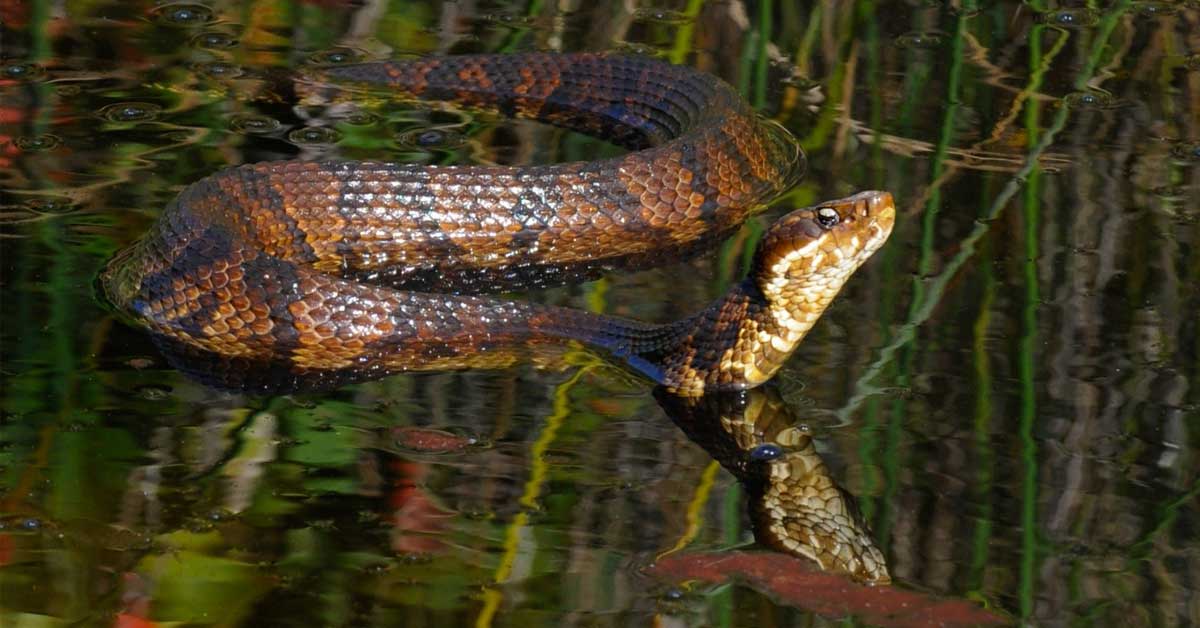



Snakes On The Water Virginia Dwr
5 What snake is orange underneath? Young water moccasins look different than adults One may also ask, do brown snakes have yellow bellies? Cottonmouth / Water Moccasin (Agkistrodon piscivorus) – Venomous Description Cottonmouths are venomous semiaquatic snakes often referred to as "water moccasins" They have large, triangular heads with a dark line through the eye, elliptical pupils, and large jowls due to the venom glands
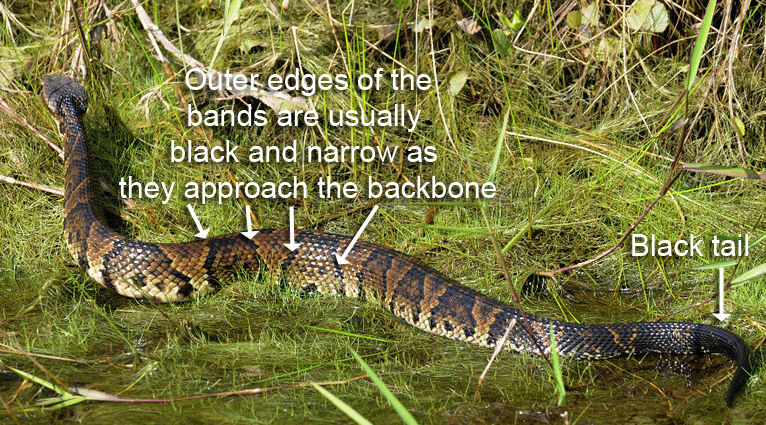



Cottonmouths And Similar Looking Harmless Species
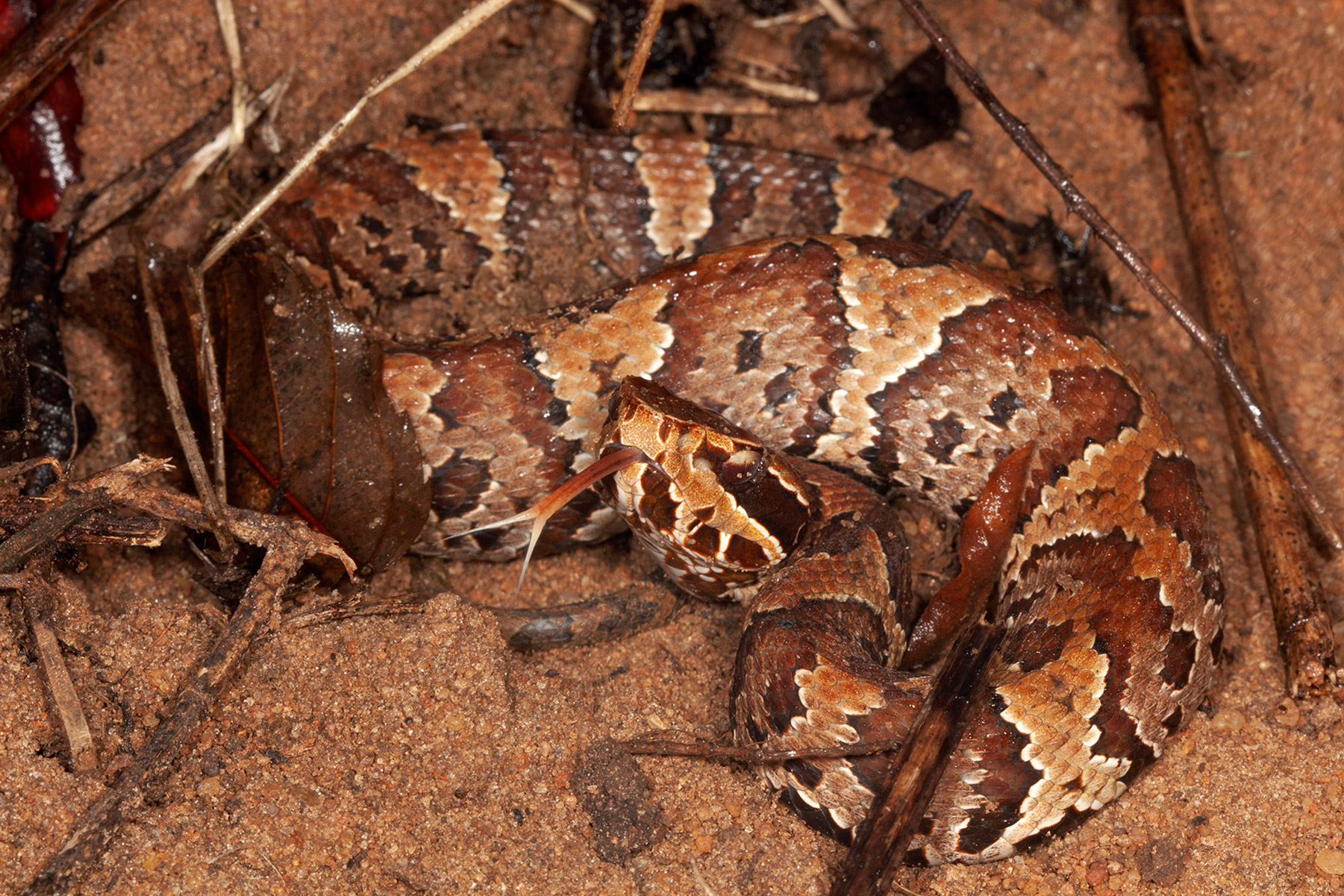



Florida Cottonmouth Florida Snake Id Guide
Copperhead snakes are mediumsized venomous snakes found in Eastern North America They are pit vipers and five subspecies have been recognized so far The females are usually longer than males Copperhead Snake Pictures Gallery8 Can a copperhead kill a dog?Copperhead We do NOT have native/wild Water Moccasins, "Diamondbacks" or Coral Snakes The Timber Rattlesnake resides in the state's Pinelands region and throughout most of the mountainous areas of the northern region of the state They also are found within the valleys immediately proximate to the mountains during their summer movements The




Cottonmouth Vs Copperhead Youtube



Water Moccasin Information Facts
The belly is plain yellow with a wash of orange, especially under the tail In summer, it often ventures away from water onto land Learn which water snakes in Texas are poisonous and which varieties are nonvenomous Find out how to tell the difference between a water snake and a water moccasin and what a yellow bellied water snake, black water snake, blotched water snake and a broad banded water snake look likeGarter Snakes Both the common garter snake and the striped garter snake can be found in this state, one that can come in many designs and colors, but the most easily identifiable feature is a stripe running down the length of a snake, on the dorsal/spine/top of the snake Found more often than not in the suburbs and towns of Illinois, they eat frogs, toads, and other waterswelling




Scouting Snake Identification
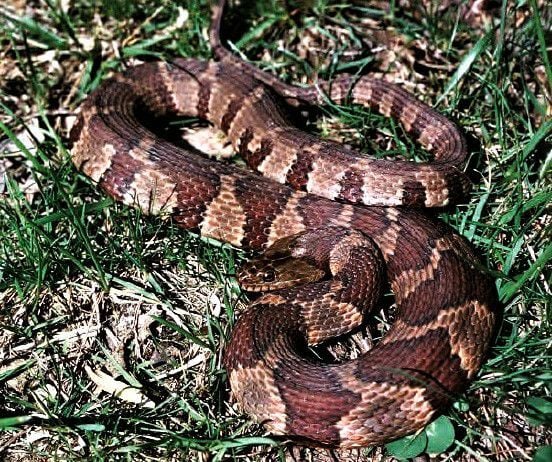



Snake Mistakes Many Of Those Copperheads Are Northern Watersnakes Local Sports Paducahsun Com
Both baby cottonmouths and baby copperheads have bright yellowgreen tails, vividly set off from the rest of the body Cottonmouths of all ages gape the mouth wideopen when threatened This medium to large pit viper goes by several common names in Mississippi, including "water moccasin" and "stumptailed moccasin" 5 Ways How to Tell the Difference Between Cottonmouths (Water Moccasins) and Copperheads admin Uncategorized Cottonmouths, Agkistrodon piscivorus , and Copperheads, Agkistrodon contortrix , are venomous snakes that are closely related and frequently encountered in the United States Cottonmouth, Cottonmouth Moccasin, Water Moccasin, Moccasin Basic description The average adult Florida cottonmouth is 3048 inches ( cm) in total length This snake is heavy bodied with a pattern of light brown and dark brown crossbands containing many dark spots and speckles The pattern darkens with age so adults may become uniformly




How To Identify A Baby Cottonmouth Snake 16 Helpful Photos
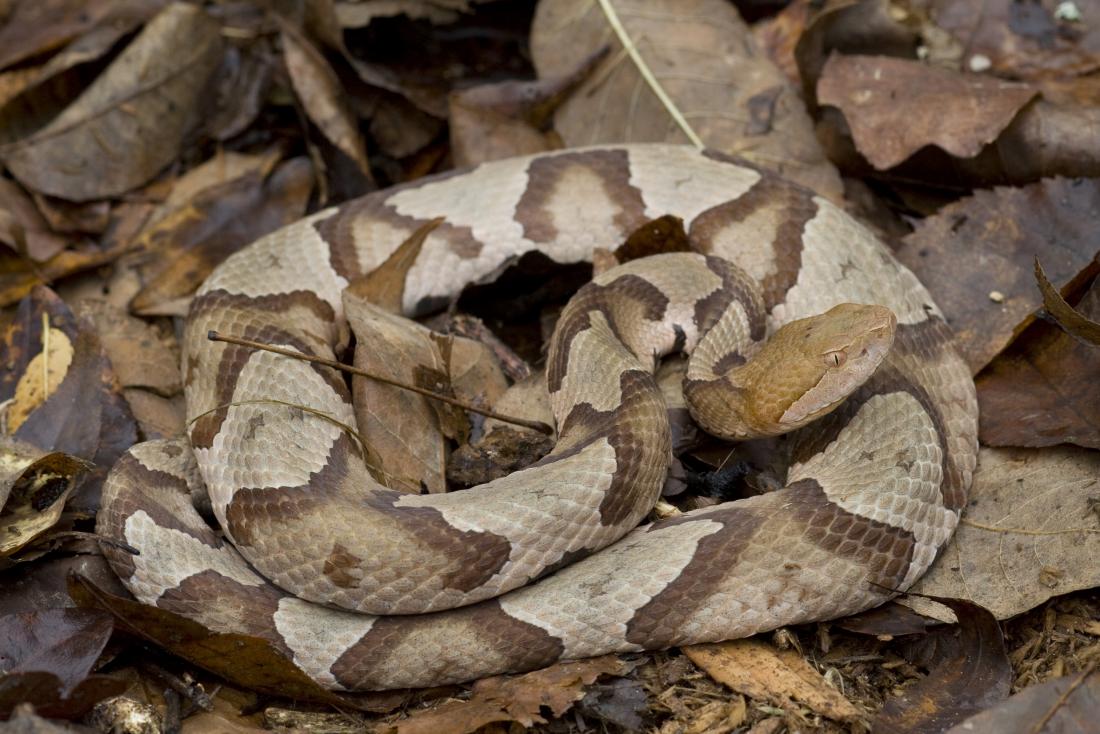



Snake Bites Symptoms Treatment And Types Of Snake
A baby copperhead snake tail has a yellow tip, which later goes darker as the snake ages You can see how this baby copperhead is attracting a frog with it's bright greenish yellow tail When they get older, the green tail fades away This is because they become more experienced hunters as copperheads matureMost copperbellies over 30 inches long are females Habitat Copperbelly water snakes need a mosaic of shallow wetlands or floodplain wetlands surroundedWhat does the underbelly of a copperhead snake look like?



Baby Water Snake




Cottonmouth Vs Water Snake What Is The Difference Animal Hype
7 Do baby Copperheads look like worms?It is gray or greenish brown with brown blotches along the back and sides;4 Do water moccasins have orange bellies?
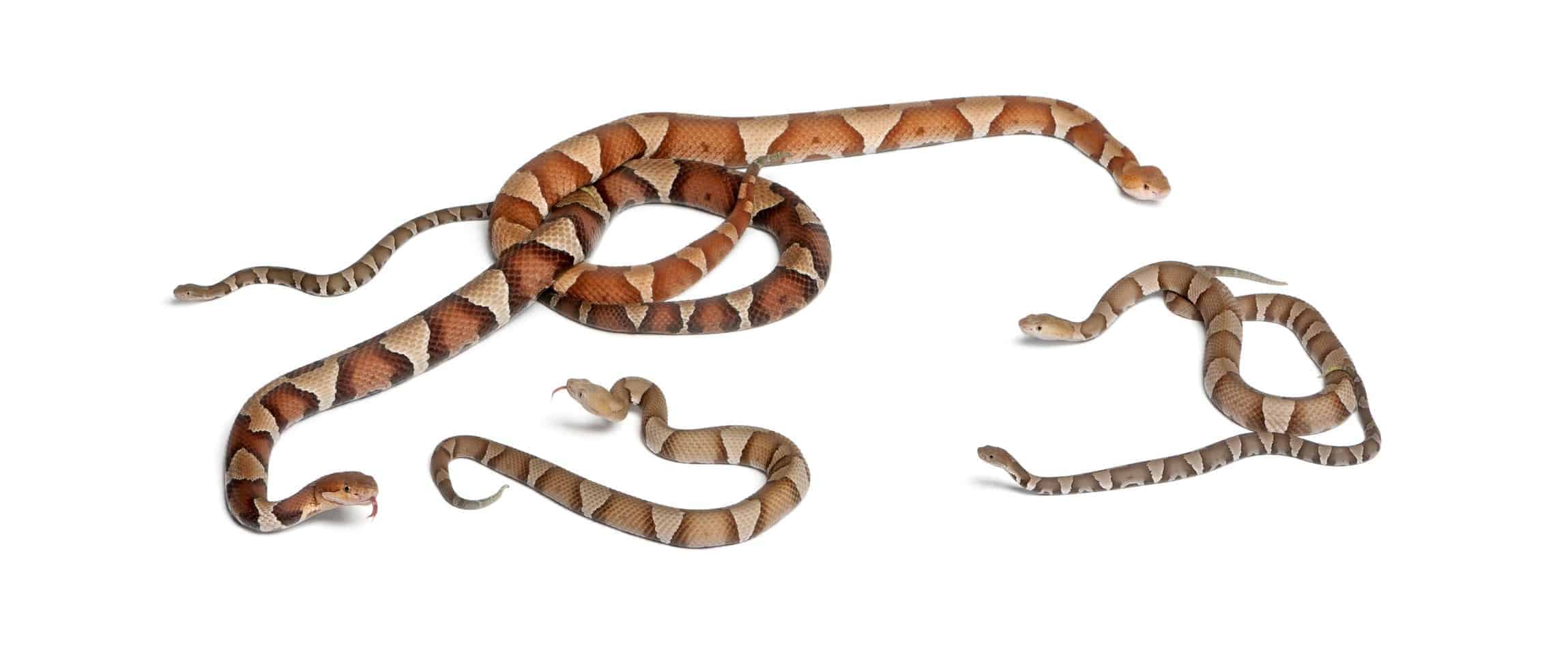



Copperhead Snakes Species Profile With Bite Information Facts And Pictures Embora Pets




How To Identify The Copperhead
Diamondback Water Snakes are some of the largest water snakes in Missouri with some adults reaching over 5 ft in length They get their name from the diamond pattern on their backs They are mostly dark in color and some may have a yellow belly The Diamondback Water Snake is common in much of the Southeastern United StatesThe venomous water moccasin is one of the deadliest snakes you could encounter in the water It is abundantly found in the southeastern part of the United States and will be most likely found in large river bodies A close encounter with them might even be deadly and avoiding them is one of the best ways to ensure your safety9 Do Copperheads swim underwater?




Very Cute Baby Water Snake Not A Moccasin Not A Copperhead Youtube
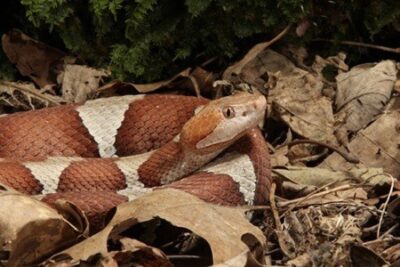



What A Copperhead Snake Looks Like With Pictures
They are also in the genus Agkistrodone (pronounced agkisstrowdoene), which includes the cottonmouth or water moccasin It is a shy snake that is usually not aggressive and its bites are rarely fatal, though they can be painful POISONOUS VERSUS VENOMOUS Animals that inject venom are called venomous, and not poisonous
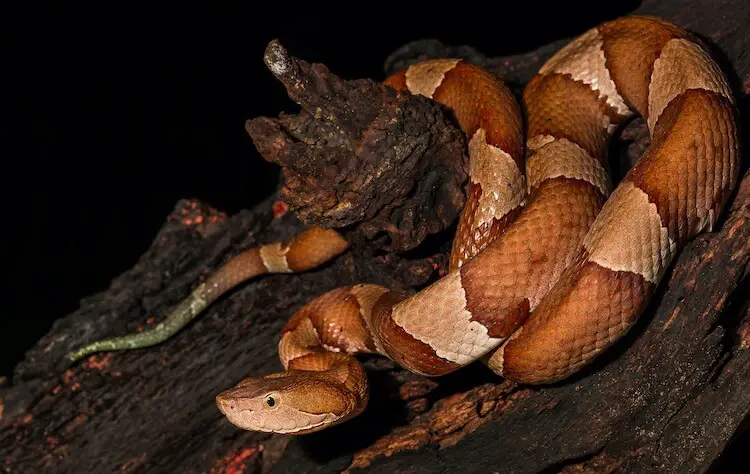



7 Ways To Identify Prevent Remove Baby Copperhead Snakes Everything Reptiles




Identifying Copperhead Snakes Home Garden Information Center




Copperhead Snake The Australian Museum
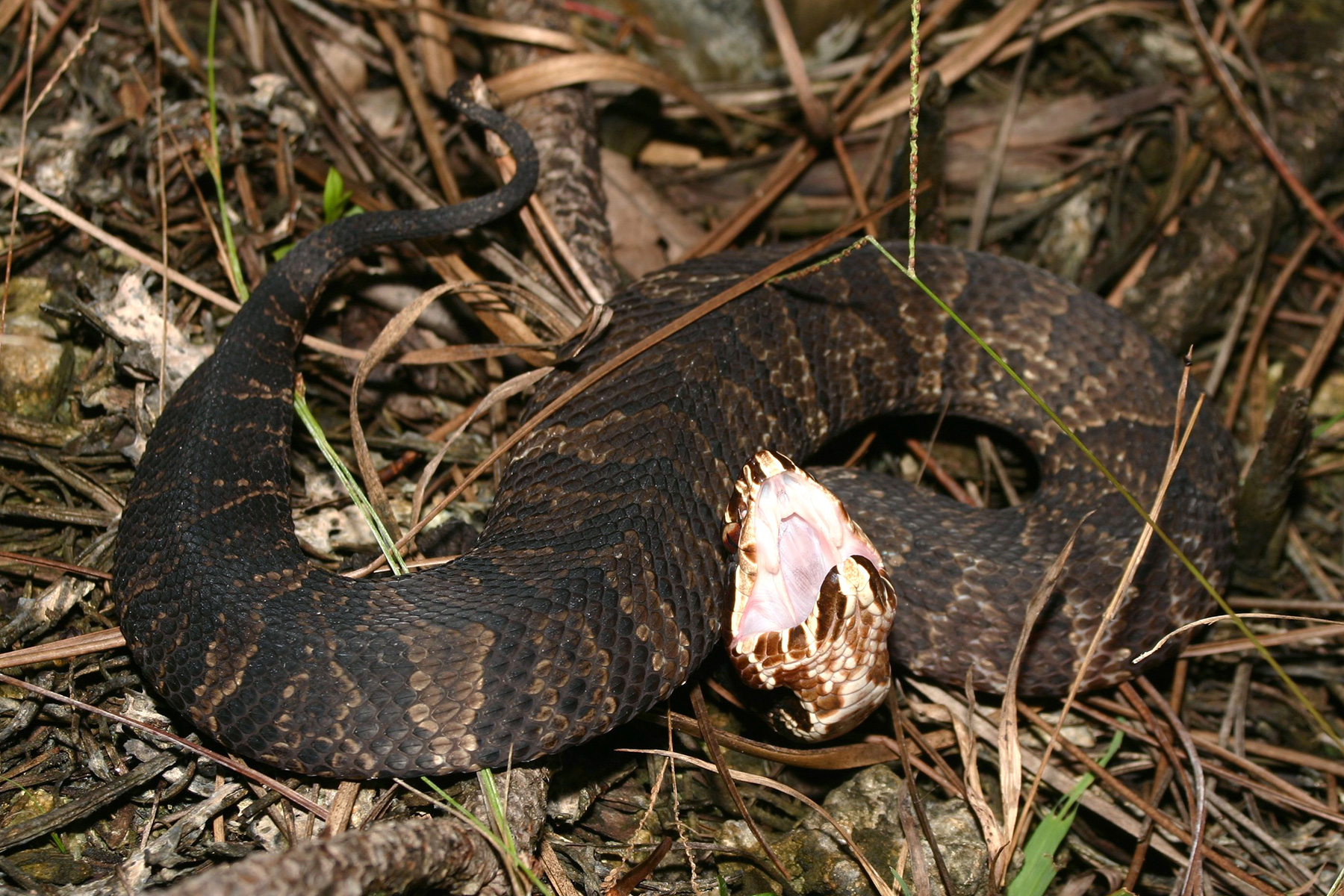



Florida Cottonmouth Florida Snake Id Guide
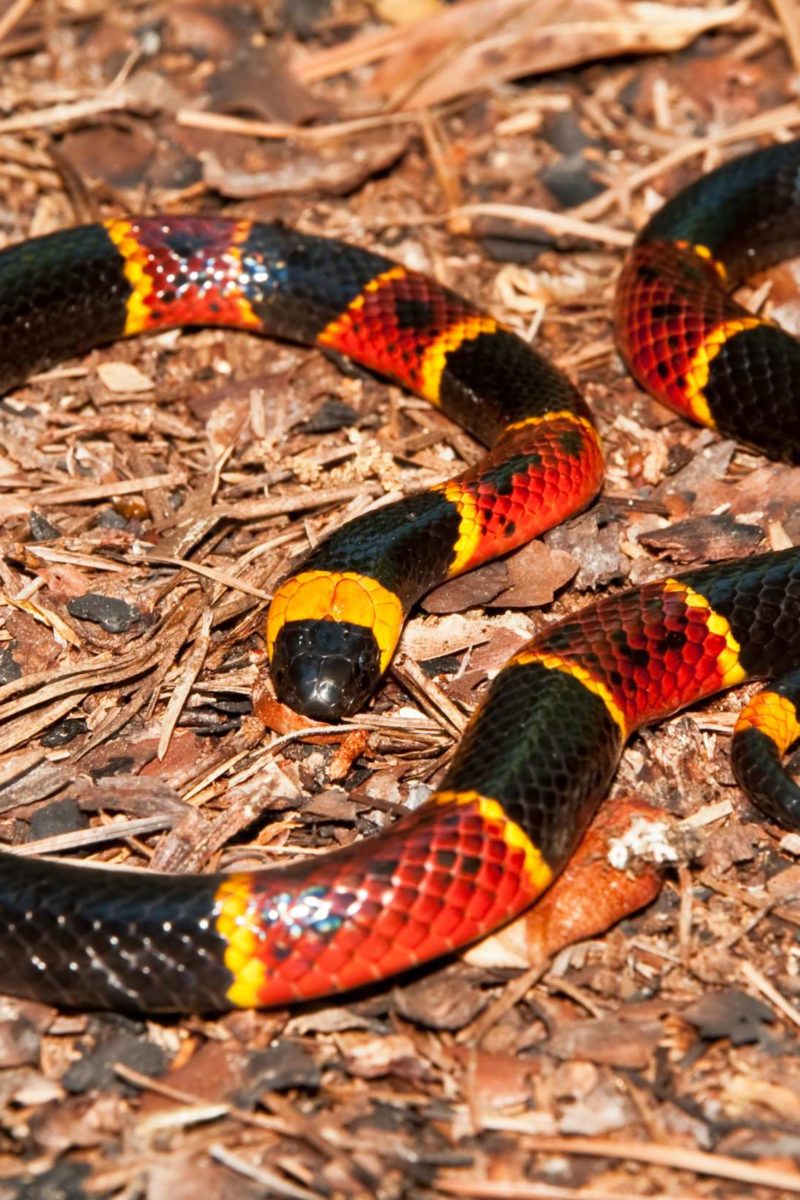



Snake Bites Symptoms Treatment And Types Of Snake




8 Snakes That Look Like Copperheads With Pictures Wildlife Informer
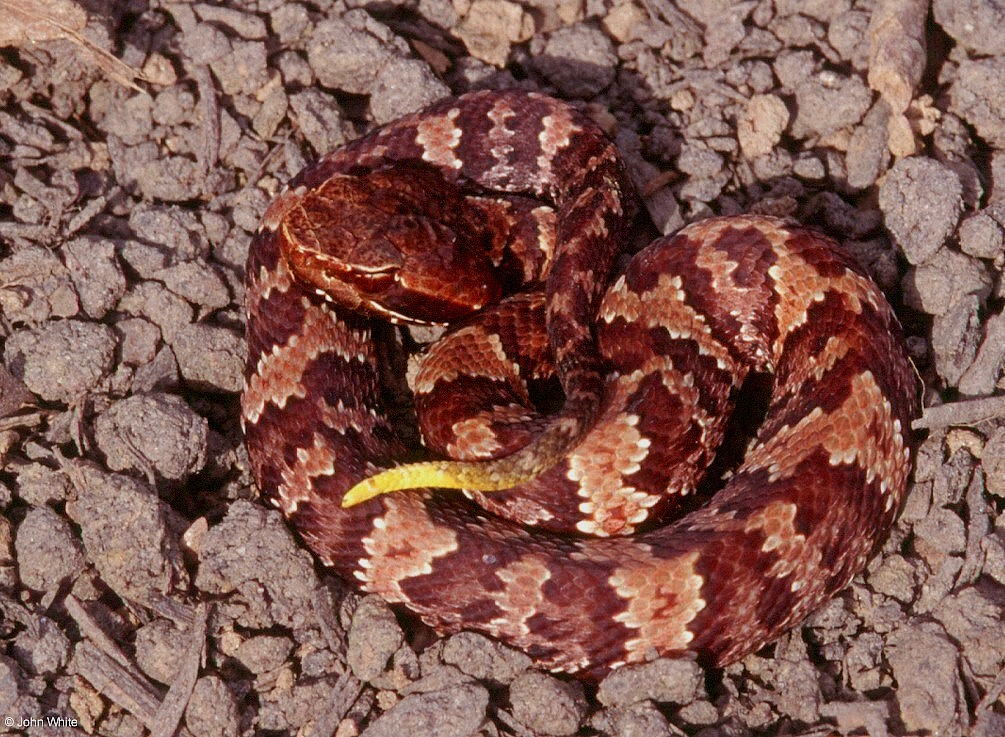



Cottonmouths And Similar Looking Harmless Species




Disjunct Populations Of The Cottonmouth Water Moccasin Agkistrodus Piscivorus Georgiabeforepeople
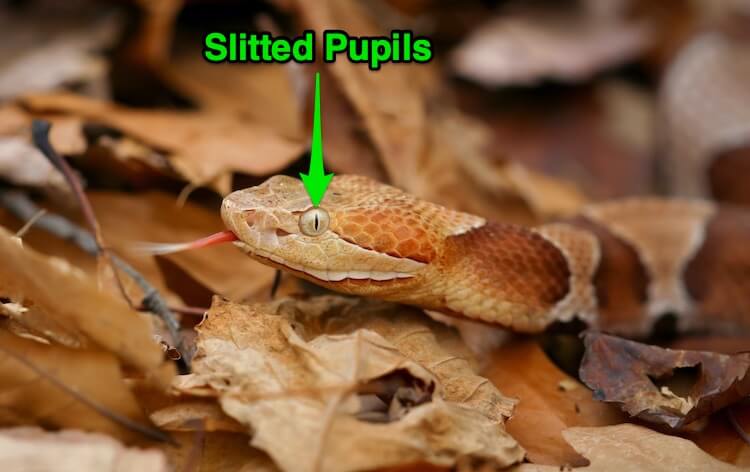



7 Ways To Identify Prevent Remove Baby Copperhead Snakes Everything Reptiles




Black Snakes What You Should Know Today S Homeowner



How To Identify A Cottonmouth Snake




How To Quickly Identify A Baby Cottonmouth Water Moccasin Survival Freedom
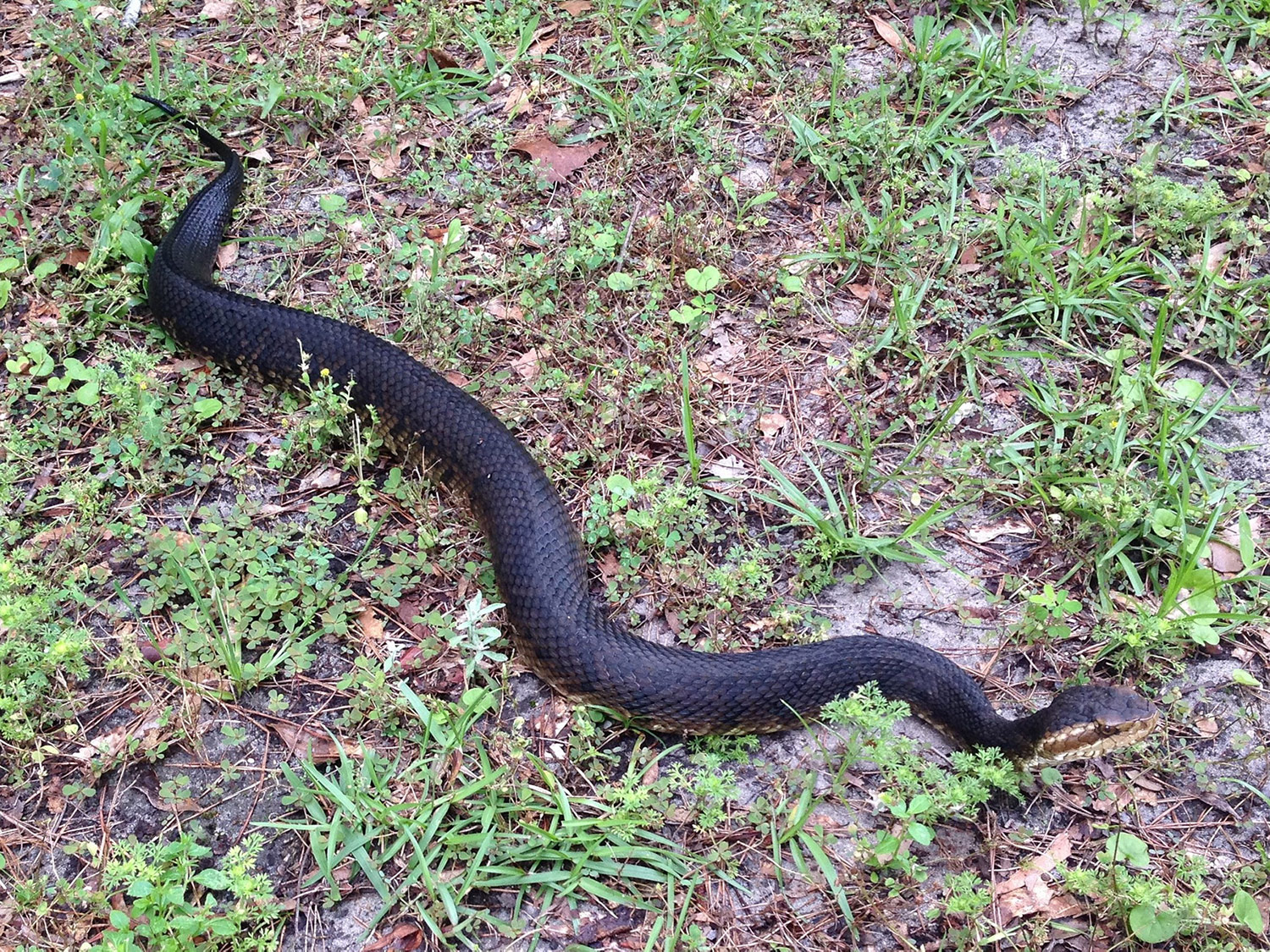



Florida Cottonmouth Florida Snake Id Guide




How To Identify A Baby Copperhead Snake 10 Key Features Survival Freedom




How To Identify A Baby Copperhead Snake 21 Pictures
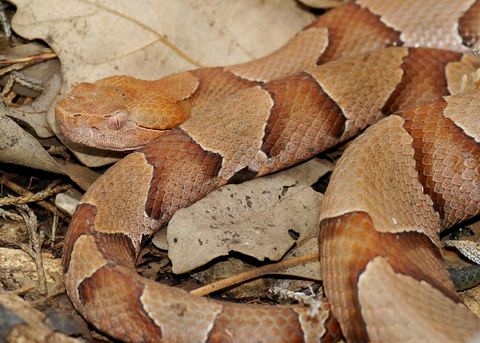



Copperhead Snakes Facts Bites Babies Live Science



Baby
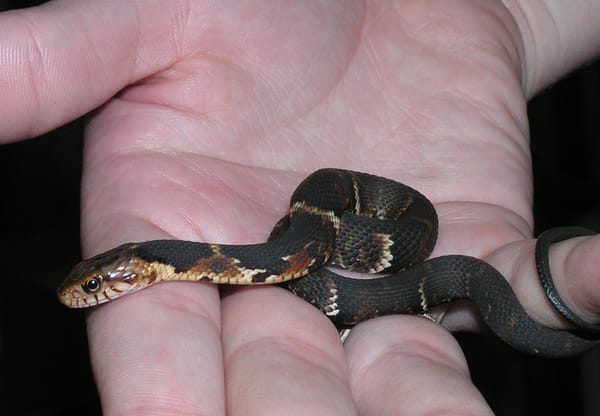



Banded Water Snake Facts Habitat Diet Life Cycle Baby Pictures
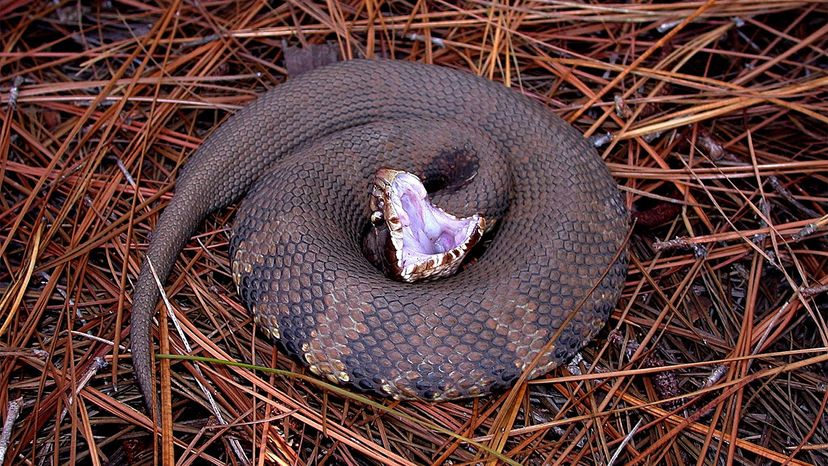



Water Moccasin Cottonmouth Different Names Same Venomous Snake Howstuffworks
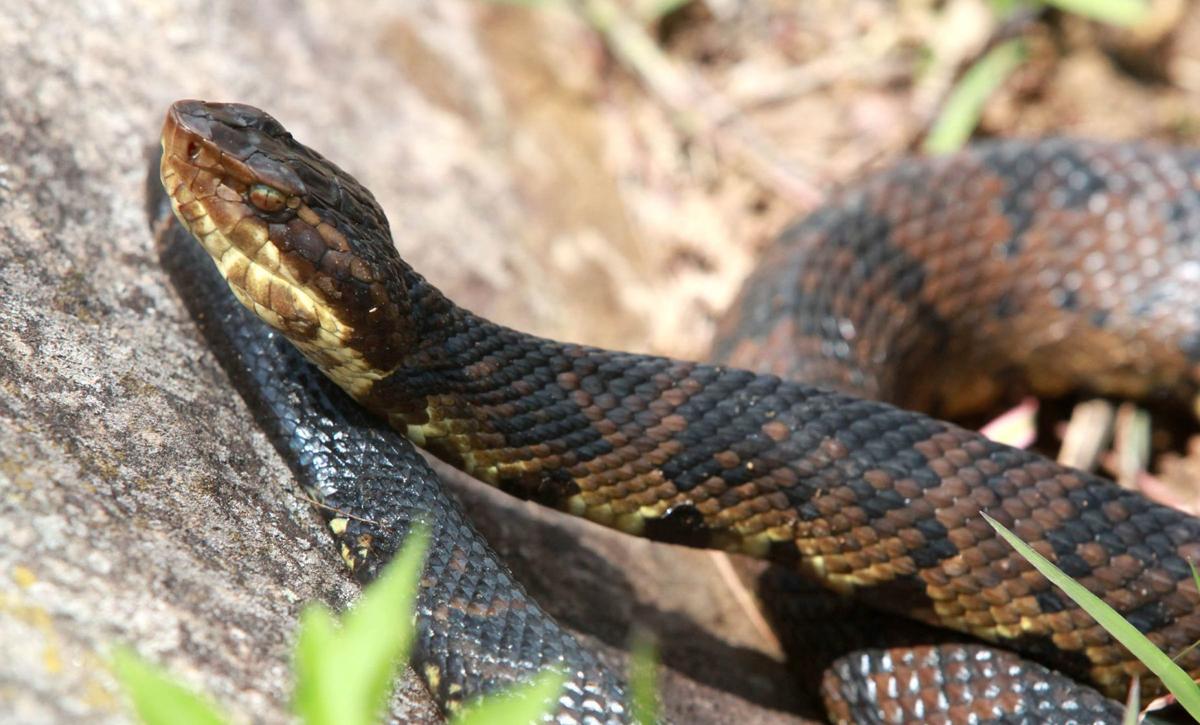



Kelly Bostian Know The Difference Between A Water Snake And A Cottonmouth Before Going Outdoors Sports News Tulsaworld Com
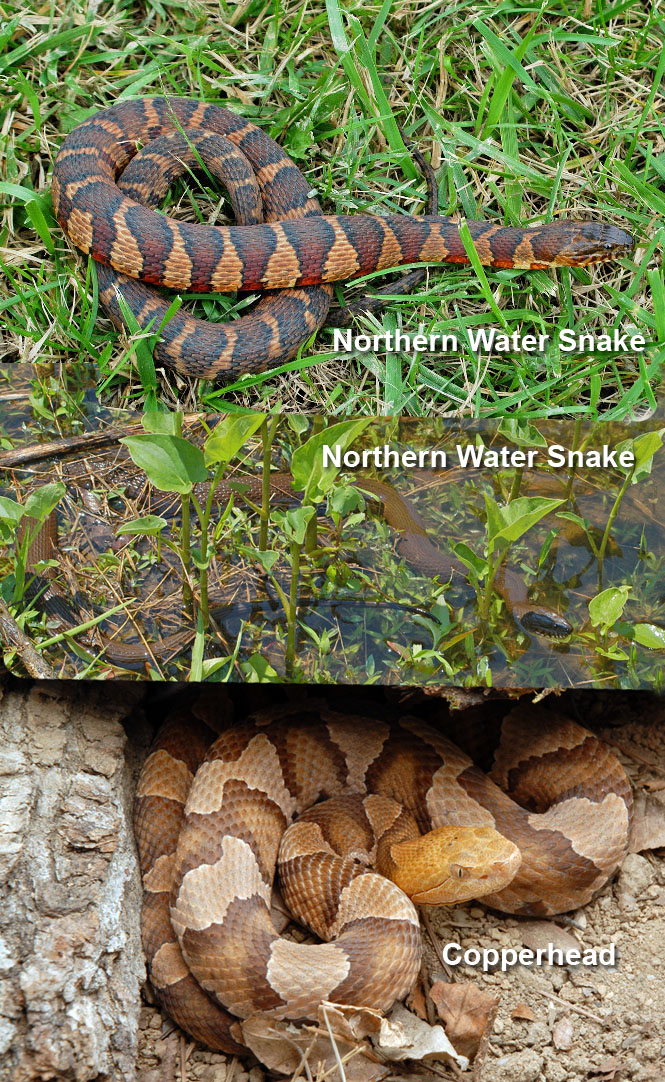



Creature Feature Northern Water Snake Raritan Headwaters




Copperhead Snakes And Water Snakes The Infinite Spider




How To Determine Baby Copperheads Animals Mom Com




Baby Copperheads How To Identify Them And Get Rid Of Them
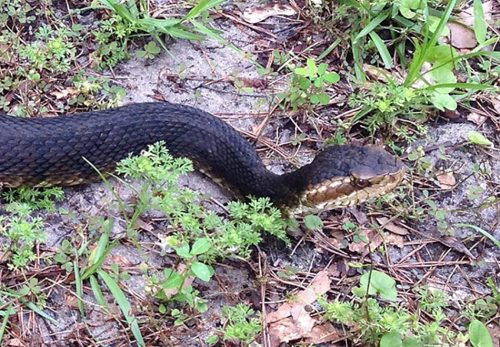



Florida Cottonmouth Florida Snake Id Guide
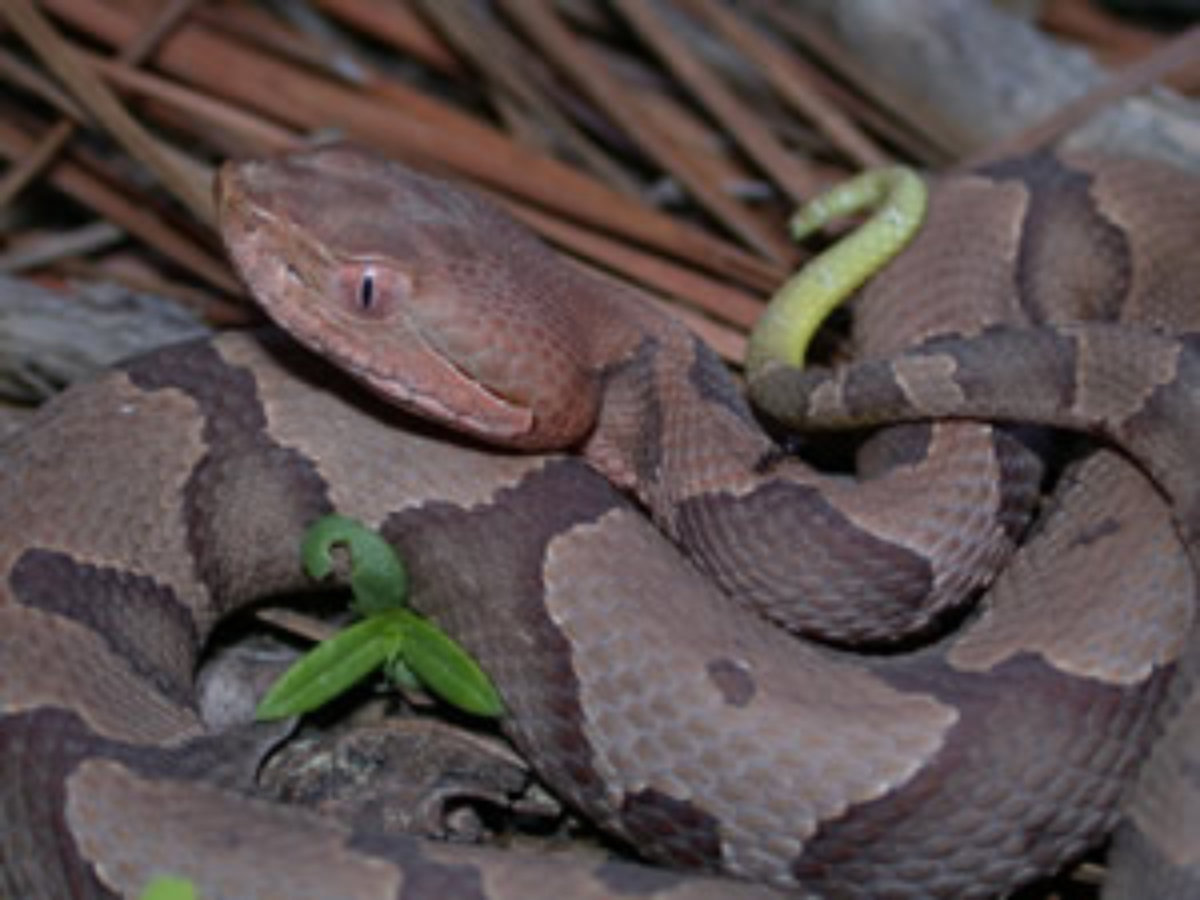



Baby Copperheads Are Out Walterboro Live
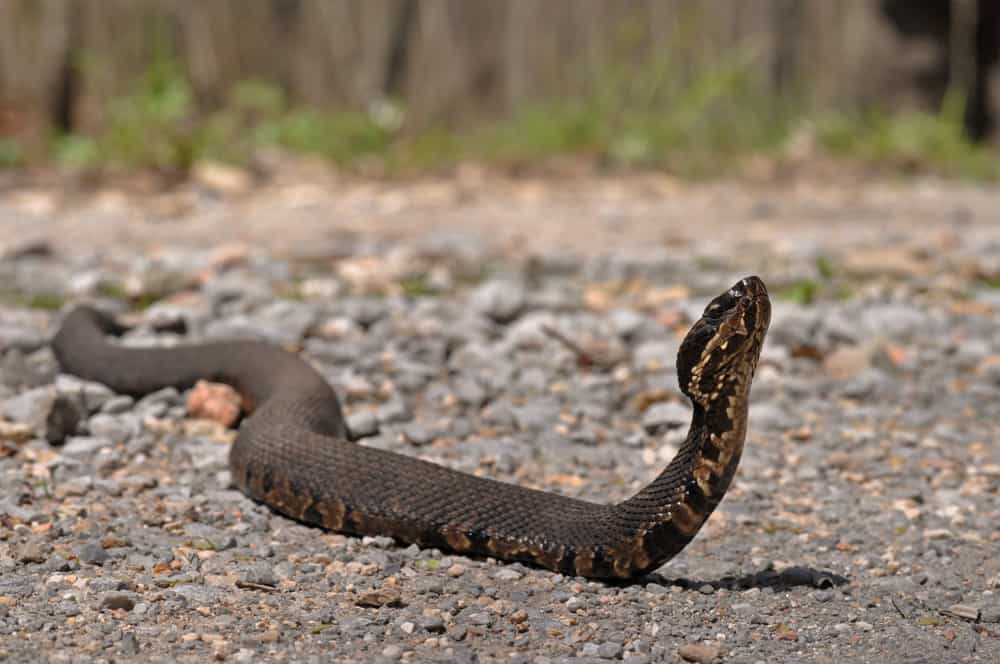



Water Moccasins Vs Cottonmouth Snakes Az Animals




How To Identify The Copperhead




5 Ways How To Tell The Difference Between Cottonmouths Water Moccasins And Copperheads Living Alongside Wildlife
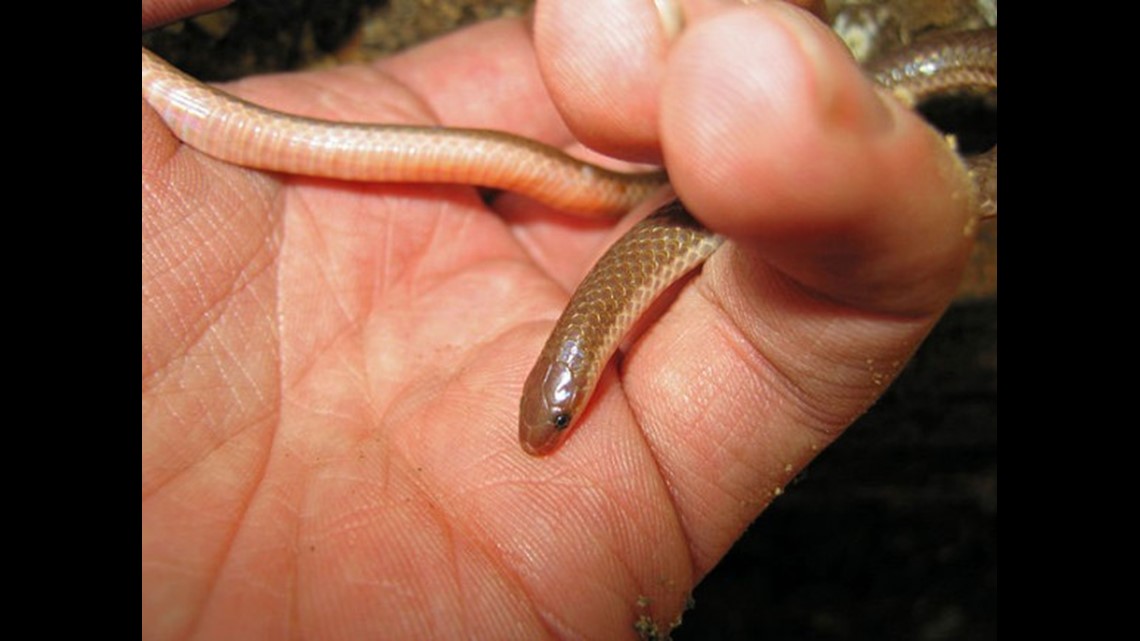



Watch Out For Baby Copperhead Snakes Wfmynews2 Com




Copperhead Agkistrodon Contortrix Kentucky Snake Identification
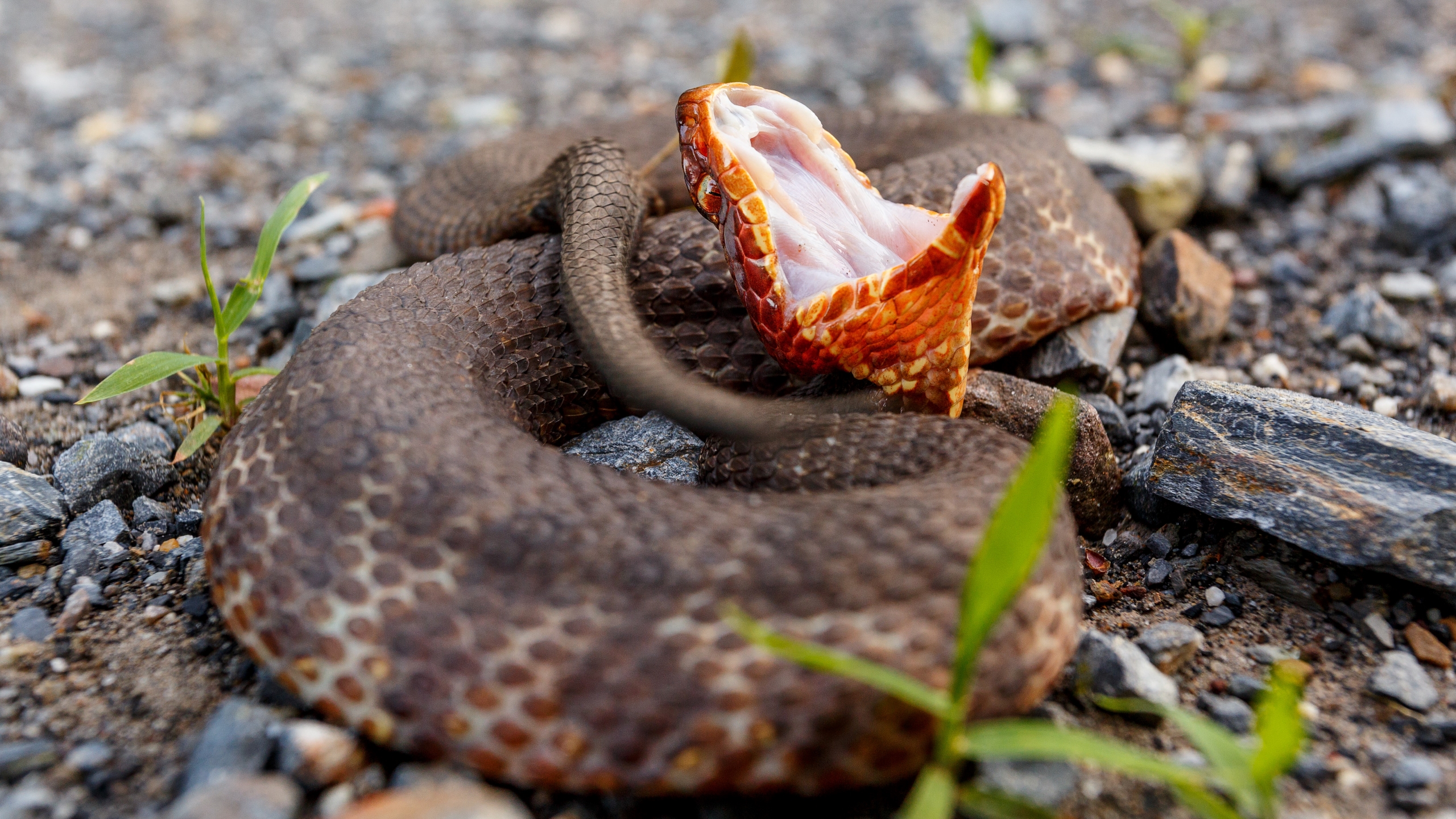



Cottonmouth Snakes Facts About Water Moccasins Live Science




Northern Water Snake Chesapeake Bay Program




Copperhead Juvenile Youtube
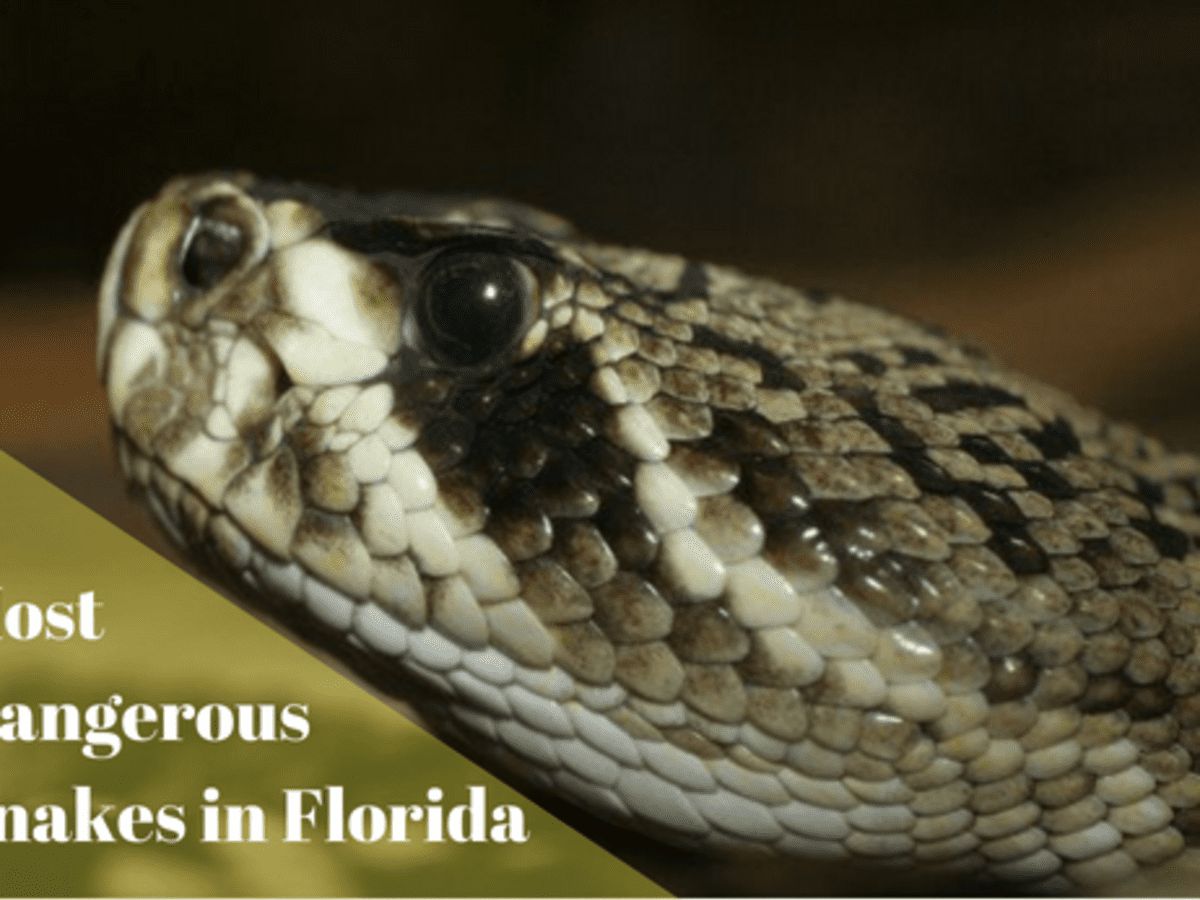



6 Most Dangerous Snakes In Florida Owlcation
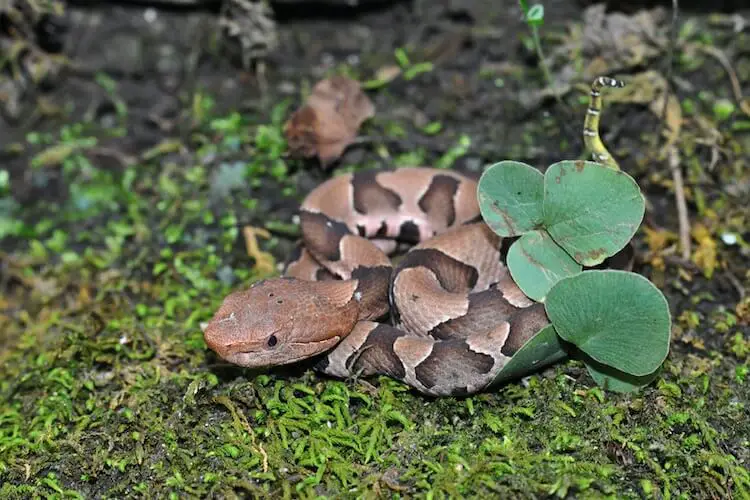



7 Ways To Identify Prevent Remove Baby Copperhead Snakes Everything Reptiles




Copperhead Snakes And Water Snakes The Infinite Spider
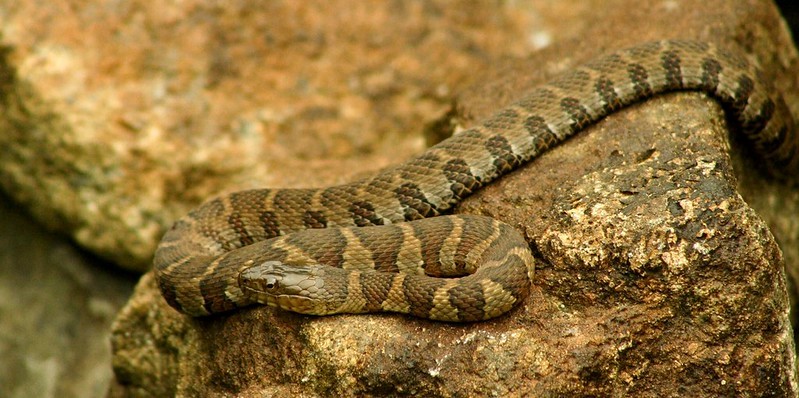



Creature Feature Northern Water Snake Raritan Headwaters
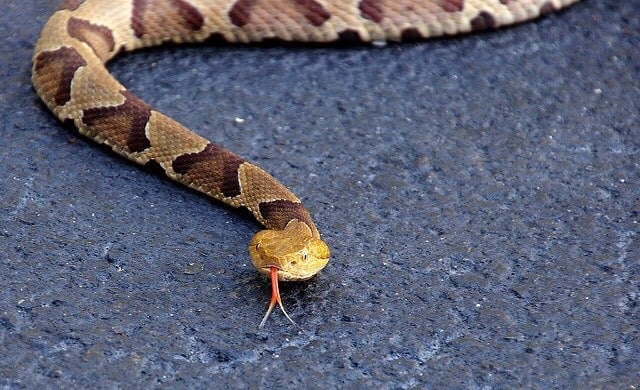



Baby Copperhead Snake Identification Guide Look For These 5 Things Embora Pets




How To Identify A Baby Copperhead Snake 21 Pictures
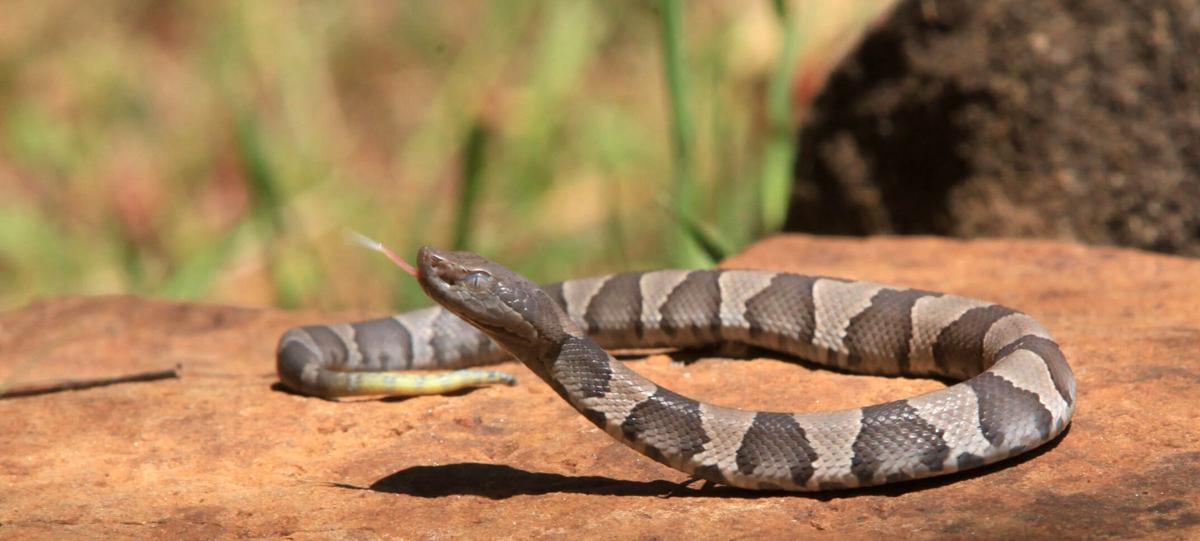



Snakes Alive Copperhead Other Snake Encounters More Likely As Days Shorten Weather Cools Local News Tulsaworld Com
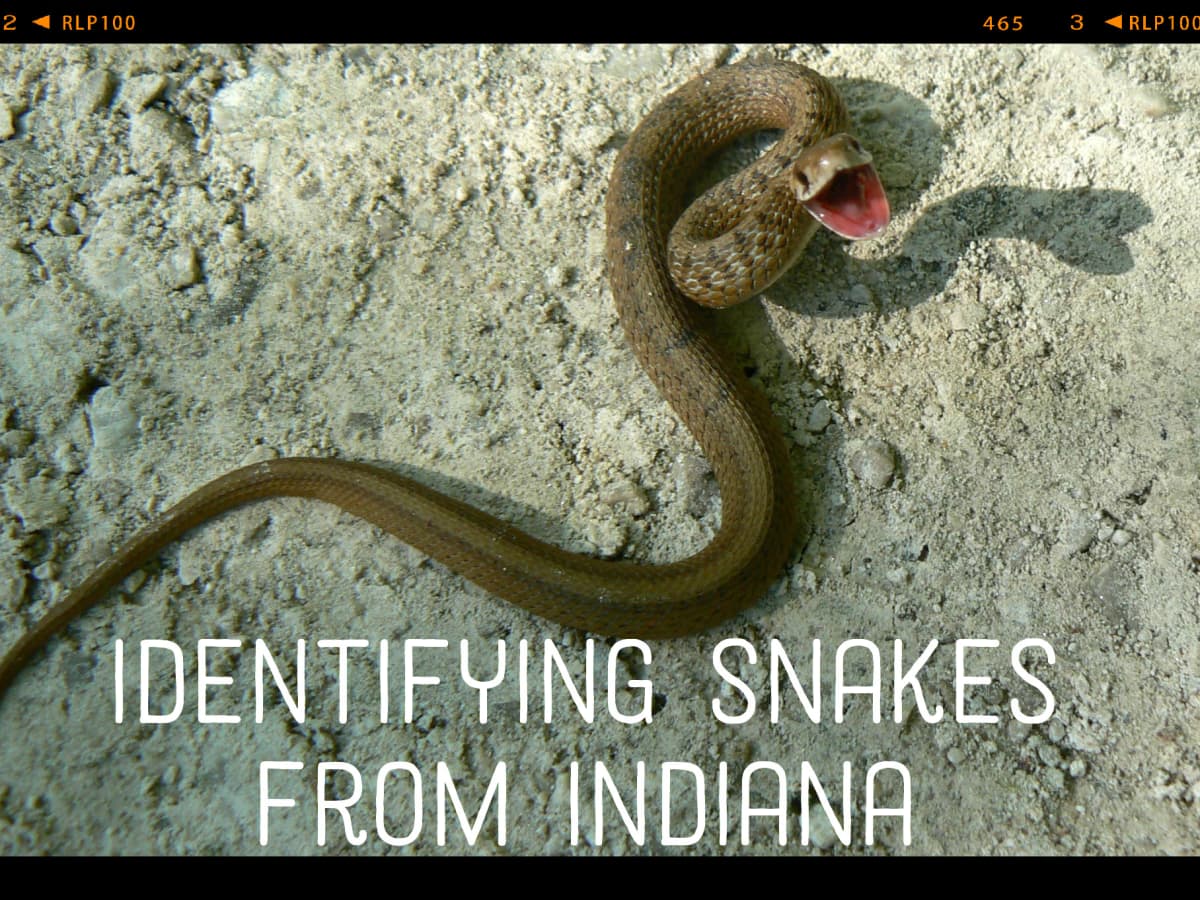



How To Identify The Snakes Of Indiana Owlcation
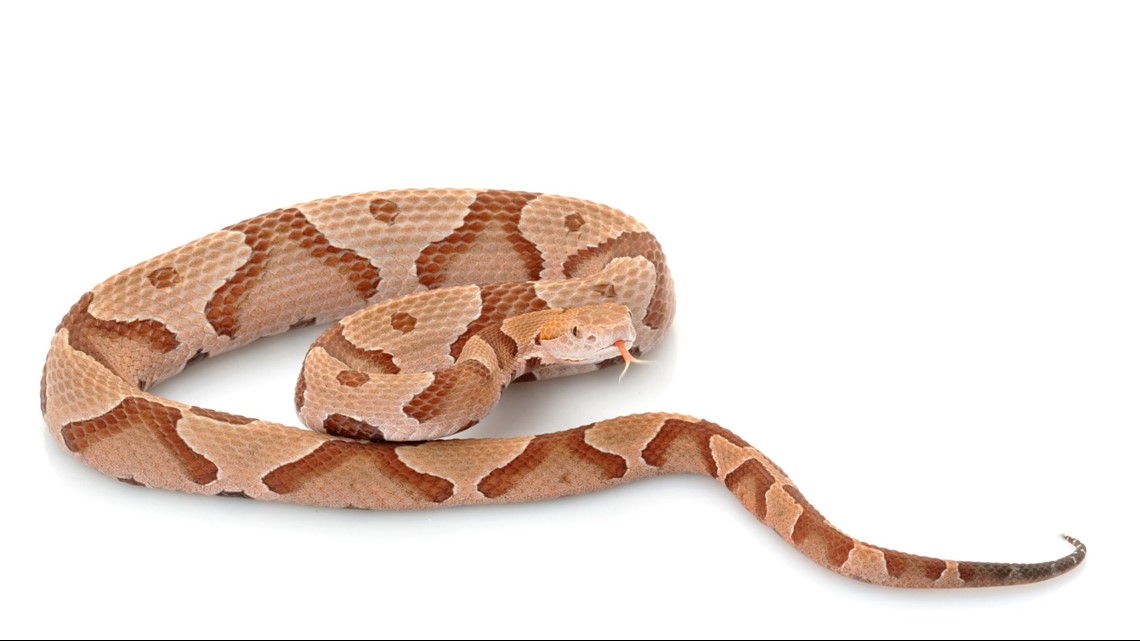



Your Guide To The Six Venomous Snakes In The Carolinas Wcnc Com




40 Arkansas Snakes Ideas Snake Reptiles Snake Venom
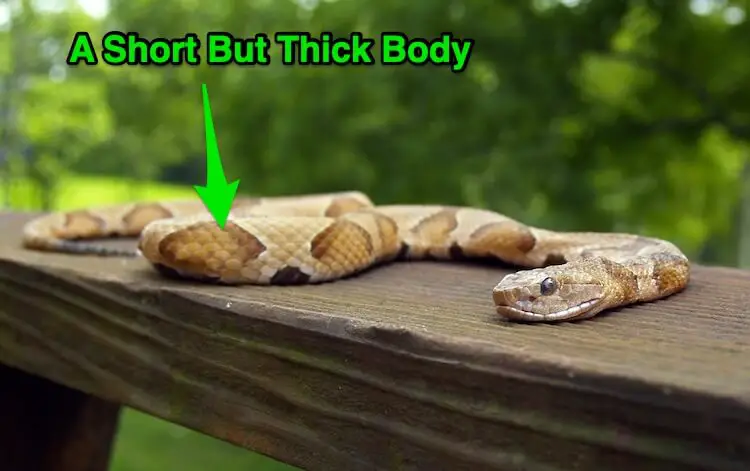



7 Ways To Identify Prevent Remove Baby Copperhead Snakes Everything Reptiles




Agkistrodon Contortrix Mokasen Wikipedia
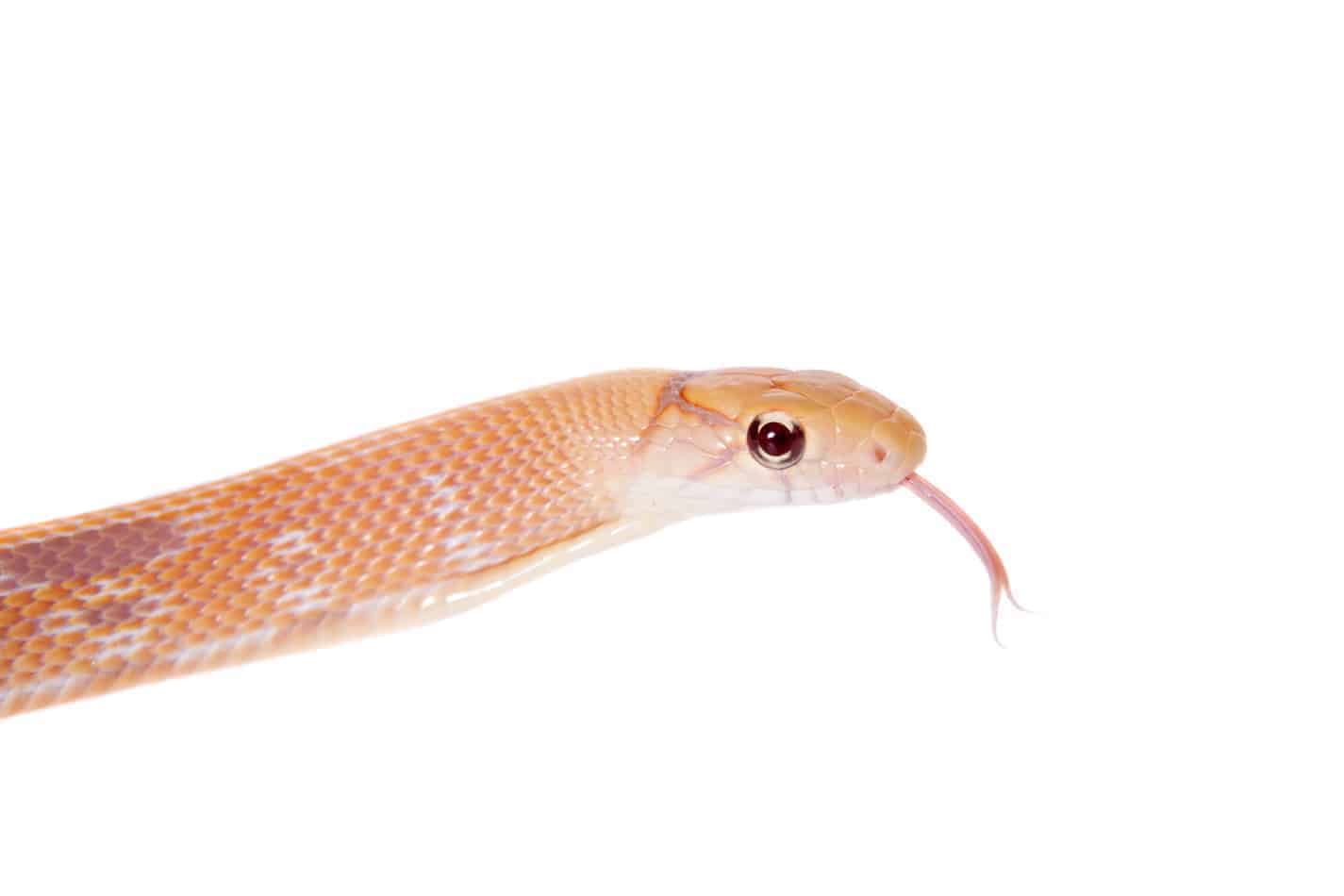



Baby Copperhead Snake Identification Guide Look For These 5 Things Embora Pets
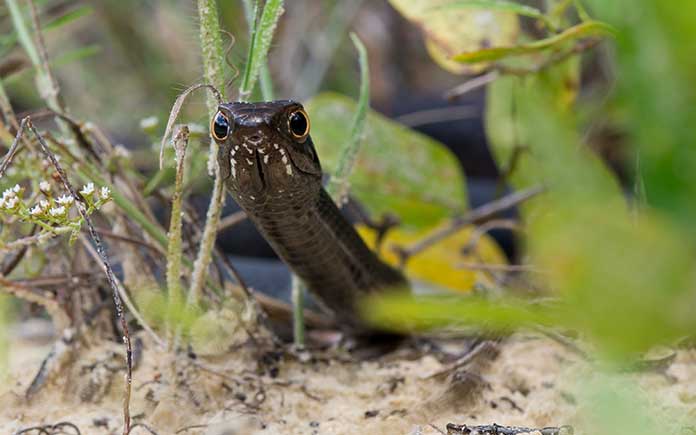



Black Snakes What You Should Know Today S Homeowner




How To Quickly Identify A Baby Cottonmouth Water Moccasin Survival Freedom




Copperhead Snake The Australian Museum




Tiny But Deadly The Baby Copperhead Youtube




Poisonous Snakes Of Kansas By Robert F Clarke A Project Gutenberg Ebook
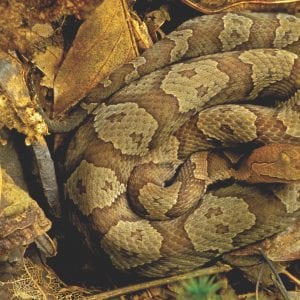



Identification And Control Of Snakes In Alabama Alabama Cooperative Extension System




Baby Copperheads How To Identify Them And Get Rid Of Them
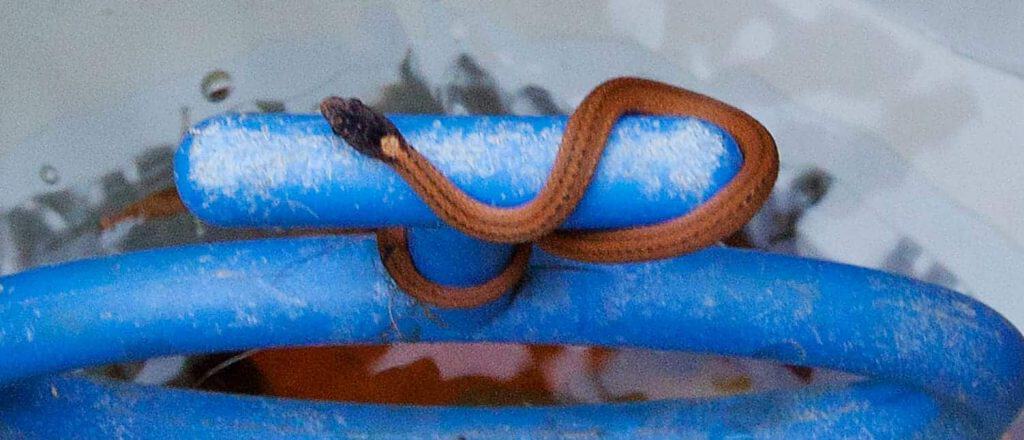



Baby Copperhead Snake Identification Guide Look For These 5 Things Embora Pets



Water Moccasin Information Facts
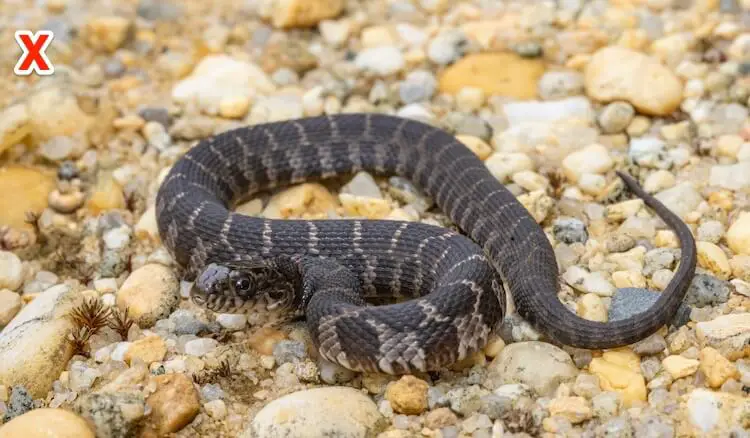



7 Ways To Identify Prevent Remove Baby Copperhead Snakes Everything Reptiles




A Field Guide To Commonly Misidentified Snakes




When Are Baby Copperheads Born And Are They More Dangerous Raleigh News Observer




298 Water Moccasin Stock Photos Pictures Royalty Free Images Istock
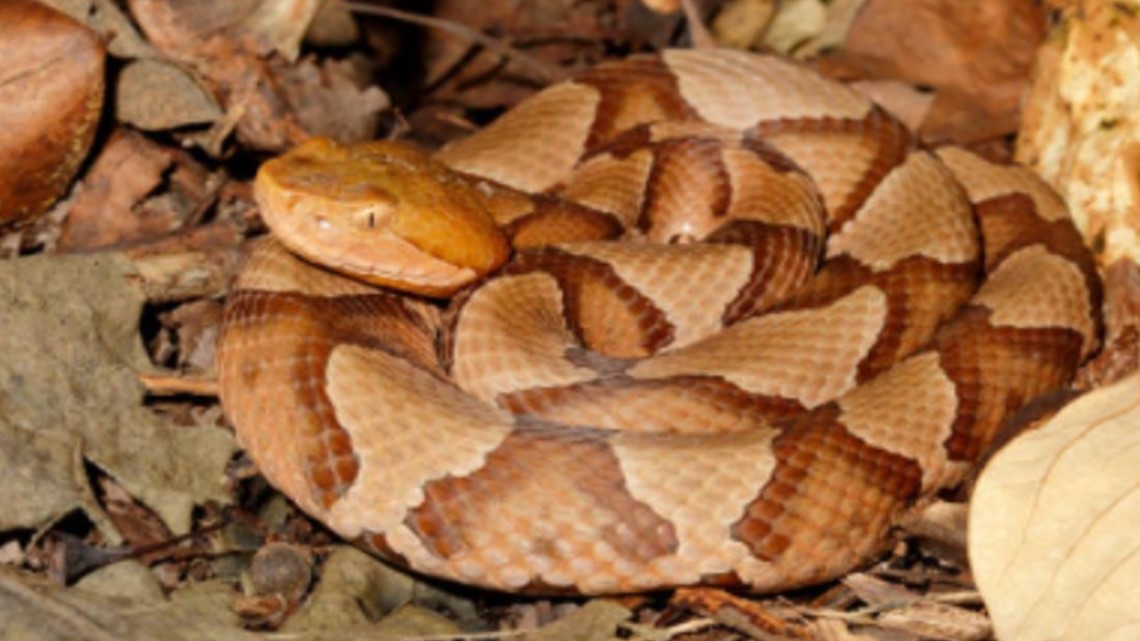



Watch Out For Baby Copperhead Snakes Wfmynews2 Com




How To Identify A Baby Copperhead Snake Quora




Juvenile Cottonmouth Moccasins And Copperhead Snakes Look Almost Like Twins The Virginian Pilot



How To Tell The Difference Between A Water Snake And A Copperhead Quora




Agkistrodon Piscivorus Wikipedia
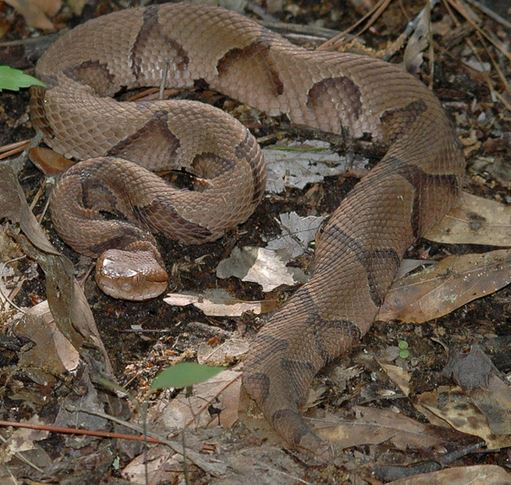



Copperhead Snakes And Water Snakes The Infinite Spider
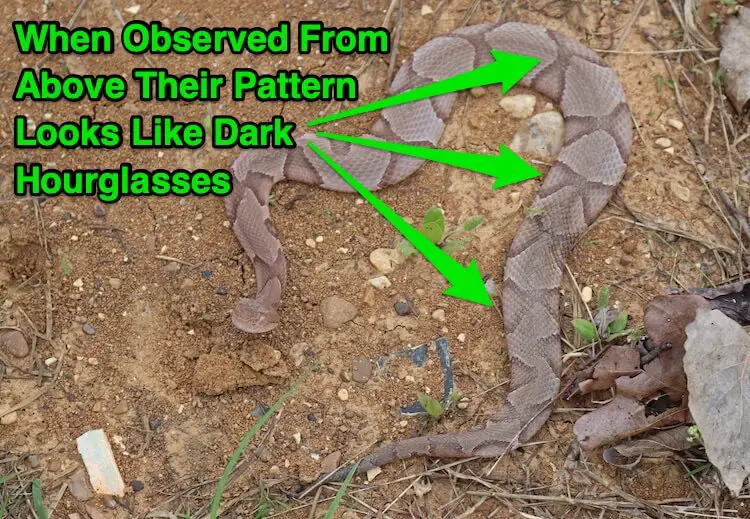



7 Ways To Identify Prevent Remove Baby Copperhead Snakes Everything Reptiles



Snake Bellies Snakes In Western Massachusetts



Baby




Cottonmouth And Water Moccasin Same Snake Houseman Pest
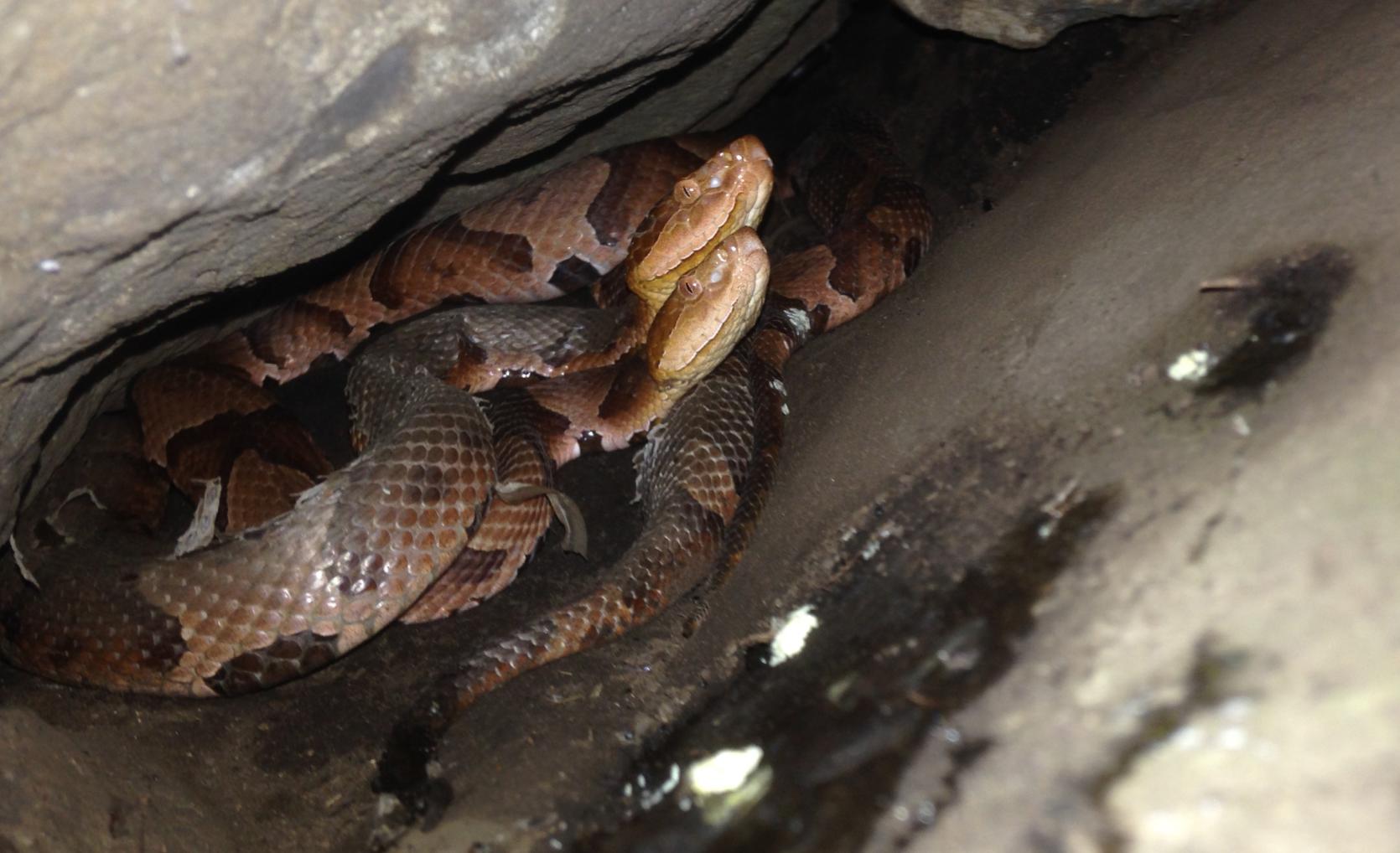



Copperhead Birth Caught On Camera Mass Gov



3



0 件のコメント:
コメントを投稿